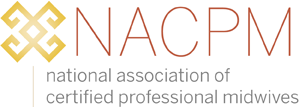Equity Resource Guide
“Where are we now? Who are we today? Where do we want to go? Who do we want to become? How do we get there? ...Where we are going and who we need to be to get there are married. We can’t get to a new destination without shifting who and how we are.”
“This is some of the hardest work. It’s not about pack hunting an external enemy, it’s about deep shifts in our own ways of being. But if we want to create a world in which conflict and trauma aren’t the center of our collective existence, we have to practice something new, ask different questions, access again our curiosity about each other.” -Adrienne Maree Brown, Emergent Strategy: Shaping Change, Changing Worlds
Midwifery in the United States has a complicated history of marginalization and division. Prior to the twentieth century, midwives served in their communities as the primary maternity care providers for childbearing people in the United States and attended the majority of births. The percentage of midwife-attended births declined steadily over time as chattel slavery ended, native and indigenous communities were decimated, and community midwives, foreign-trained midwives, and home birth were stigmatized through disinformation and anti-midwifery campaigns. These primarily physician-led campaigns were fueled by racism, classism, gender discrimination, and anti-immigrant fervor.
By 1975, the number of midwife-attended births reached its lowest point at less than 1% of births overall and 2.4% of non-white births. Many traditional midwives were being forcibly retired and the legacy of race, gender, and class injustice surrounding midwifery was deeply embedded in the dominant American cultural beliefs about birth and midwifery. For instance, in 1925 in the state of Georgia there were approximately 9,000 black, indigenous and immigrant midwives serving in their own communities. By 1944 that number had been reduced to 2,200. Today, there are approximately 600 midwives practicing in Georgia, and most of them are white (Georgia: “The Midwife Problem”).
The U.S. currently ranks 50th in maternal mortality and 38th in infant mortality, and the impact is not experienced equally. In our country, there are tragic disparities in health outcomes for childbearing people and infants of color due in large part to institutional racism. African American babies die at more than twice the rate of white babies, and maternal mortality is 4 times higher for black mothers than for whites, while American Indians and Alaska Natives have an infant mortality rate 60% higher than whites.
In light of these devastating statistics, this Equity Resource Guide is intended to begin to fill in social and historical knowledge gaps, to raise awareness within the CPM community about how racism and other forms of oppression are contributing to these deplorable outcomes for black and indigenous people and to stimulate dialogue and action. We believe midwives have a critical role to play in addressing these outcomes--but only if we each take individual responsibility for our part in bringing about change.
Note: These Resources are meant to serve as an entry point from which we encourage our members to dive deeper, utilizing the many resources available to identify and implement concrete action steps. Setting an intention and developing awareness is not enough--it is only the beginning.
Equity is an ardent journey toward well-being as defined by the affected.
Equity demands sacrifice and a re-distribution of power and resources to break systems of oppression, heal continuing wounds, and realize justice.
To achieve equity and social justice in birth, we must root out and dismantle deeply entrenched systems of racism.
Equity promotes and builds agency, requires vigilance for unintended consequences of organizational policies and actions, and boldly aspires to be restorative.
Equity is disruptive and uncomfortable and not voluntary.
Equity is fundamental to the community we want to build.Adapted from Seattle King County Best Starts for Kids
Organizations and Education Centers
Below is a list of midwifery, doula, and reproductive justice organizations led and staffed by people of color, LGBTQIA2S+, and indigenous people who are committed to using their expertise to serve their own communities and improve perinatal outcomes by ensuring access to safe, respectful, culturally relevant, and concordant care. Supporting these organizations can take many forms: NACPM members can consider providing annual financial support as a demonstration of their ongoing commitment to equity; they can amplify the extraordinary work that these organizations are doing by sharing articles and posts on social media; and they can cultivate opportunities for partnership and collaboration, using their connections and privilege to help direct attention and needed resources to these programs. This is a partial list--please click here to let us know about other organizations that should be added.
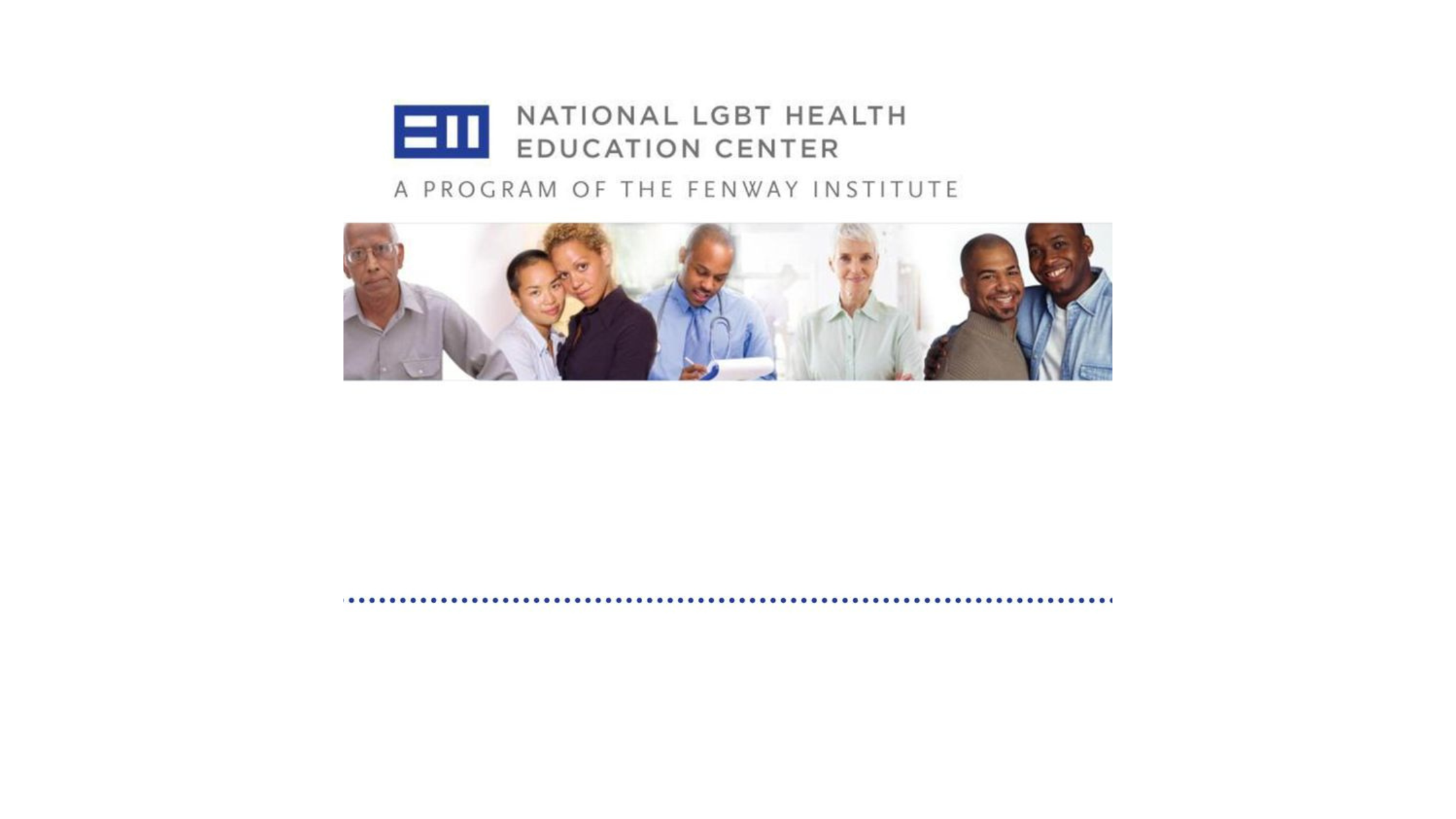
We provide educational programs, resources, and consultation to health care organizations with the goal of optimizing quality, cost-effective health care for lesbian, gay, bisexual, transgender, queer, intersex, asexual, and all sexual and gender minority (LGBTQIA+) people.

The Center of Excellence for Transgender Health (CoE) envisions a safe and affirming world, free from all oppressions, where trans and gender non-binary communities are healthy and thriving.

MISSION: Strengthening community by honoring, supporting, and reclaiming Indigenous midwifery care.

Our mission is to ensure that all pregnant, postpartum, and parenting people of color have access to high-quality, holistic doula care and services regardless of their ability to pay.
Ancient Song is a national birth justice organization working to eliminate maternal and infant mortality and morbidity among Black and Latinx people. We provide doula training and services, offer community education, and advocate for policy change to support reproductive and birth justice.

The Black Mamas Matter Alliance is a national network of Black women-led and Black-led, birth and reproductive justice organizations and multi-disciplinary professionals, working across the full-spectrum of maternal and reproductive health.

BWBJ is a grass-roots collective out of Oakland, CA. We are Black women and individuals across the African Diaspora working to transform birthing experiences for Black women and birthing people.

We believe that all people deserve a healthy pregnancy, birth and baby so no one is ever turned away – regardless of ability to pay! We focus on safety, quality and workforce development in support of our vision for equitable maternity care.

Offering safe, compassionate, inclusive, and radical collective care in the heart of Ward 7.

OUR MISSION:
To combat the effects of structural racism within maternal and infant health to advance black birth outcomes.

We provide free perinatal services to improve birth experiences and lifelong outcomes for families. Through prenatal education, continuous doula support through labor, lactation guidance, support groups, and home visits, we establish supportive networks from pregnancy up to a child’s second birthday.

Reproductive Justice is the human right to maintain personal bodily autonomy, have children, not have children, and parent the children we have in safe and stable communities.

SisterSong is a Southern based, national membership organization; our purpose is to build an effective network of individuals and organizations to improve institutional policies and systems that impact the reproductive lives of marginalized communities.

Midwifery care is holistic, healing, and humanistic. It has a rich herstory and legacy in communities of color.
Our vision is to make this care accessible to all peoples- especially Black, Brown, youth, immigrant, indigenous, LGBTQ+, low- income and other marginalized communities.
Our mission is to expand Birth Justice by using story telling, popular education, and community organizing to improve access to midwifery and doula care.

Uzazi Village is a nonprofit organization dedicated to decreasing maternal and infant health inequity among Black and Brown communities.

For 20+ years, we have worked to build reproductive justice in New Mexico by and for women and people of color. As we stepped into our 20th Anniversary, Young Women United wanted a name that reflected who we are today and where we are headed moving forward…

Incubated at Emerson Collective and led by former New Orleans Mayor Mitch Landrieu, E Pluribus Unum is an initiative created to fulfill America’s promise of justice and opportunity for all by breaking down the barriers that divide us by race and class.

















Books

Twenty years since the publication of the Second Edition and more than thirty years since the publication of the original book, Racial Formation in the United States now arrives with each chapter radically revised and rewritten by authors Michael Omi and Howard Winant, but the overall purpose and vision of this classic remains the same: Omi and Winant provide an account of how concepts of race are created and transformed, how they become the focus of political conflict, and how they come to shape and permeate both identities and institutions. The steady journey of the U.S. toward a majority nonwhite population, the ongoing evisceration of the political legacy of the early post-World War II civil rights movement, the initiation of the ‘war on terror’ with its attendant Islamophobia, the rise of a mass immigrants rights movement, the formulation of race/class/gender ‘intersectionality’ theories, and the election and reelection of a black President of the United States are some of the many new racial conditions Racial Formation now covers.

At once a powerful evocation of James Baldwin's early life in Harlem and a disturbing examination of the consequences of racial injustice, the book is an intensely personal and provocative document from the iconic author of If Beale Street Could Talk and Go Tell It on the Mountain. It consists of two "letters," written on the occasion of the centennial of the Emancipation Proclamation, that exhort Americans, both black and white, to attack the terrible legacy of racism. Described by The New York Times Book Review as "sermon, ultimatum, confession, deposition, testament, and chronicle...all presented in searing, brilliant prose," The Fire Next Time stands as a classic of literature.
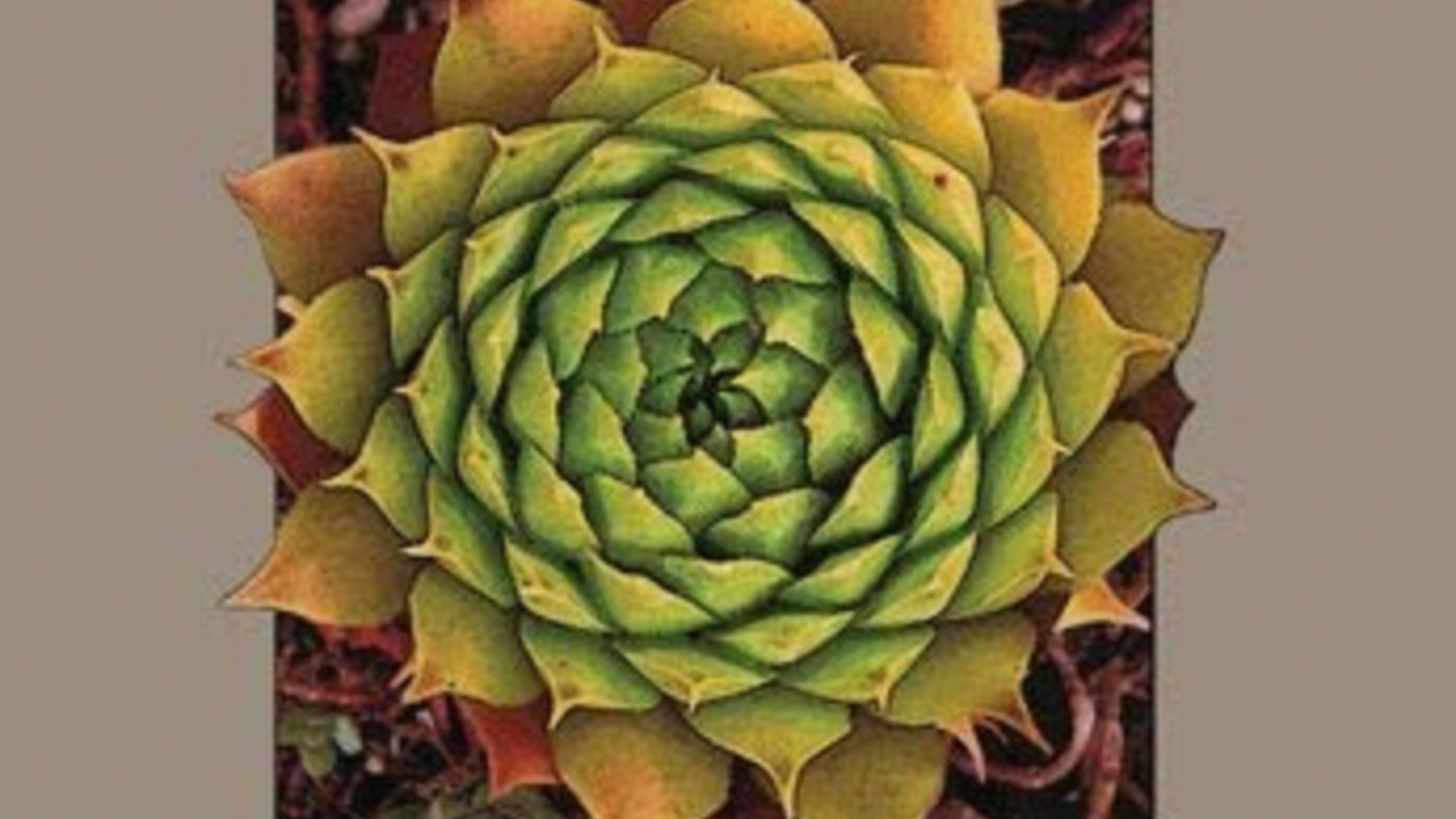
Beyond Inclusion, Beyond Empowerment, by Leticia Nieto Psy.D., and co-authors, brings a long-awaited breakthrough to the fields of liberation and cultural studies. Nieto offers a powerful analysis of the psychological dynamics of oppression and privilege, and shows readers how to develop the skills that can promote social justice for themselves and those around them. A key metaphor in Beyond Inclusion, Beyond Empowerment is the rank system. It can be used to analyze hidden and unconscious influences of oppression on people’s behavior.
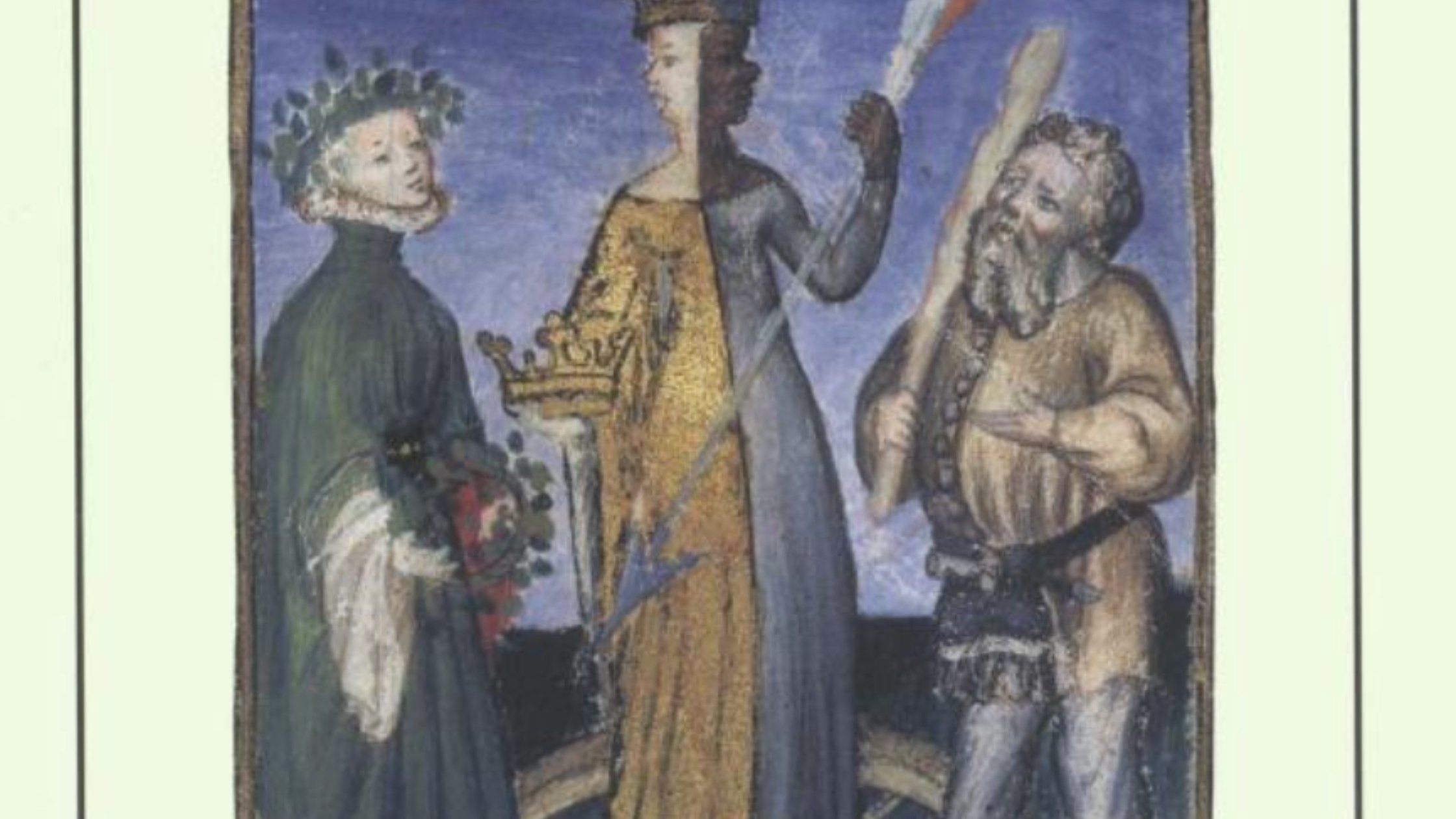
The Racial State argues that race is integral to the conceptual, philosophical and material emergence of modern nation state formation, and to its ongoing management.

From the self-described 'black, lesbian, mother, warrior, poet', these soaring, urgent essays on the power of women, poetry and anger are filled with darkness and light. Penguin Modern: fifty new books celebrating the pioneering spirit of the iconic Penguin Modern Classics series, with each one offering a concentrated hit of its contemporary, international flavour. Here are authors ranging from Kathy Acker to James Baldwin, Truman Capote to Stanislaw Lem and George Orwell to Shirley Jackson; essays radical and inspiring; poems moving and disturbing; stories surreal and fabulous; taking us from the deep South to modern Japan, New York's underground scene to the farthest reaches of outer space.

Winner of the 1988 Before Columbus Foundation National Book Award, this path-breaking collection of essays is a clarion call to build communities that nurture our spirit. Lorde announces the need for a radical politics of intersectionality while struggling to maintain her own faith as she wages a battle against liver cancer. From reflections on her struggle with the disease to thoughts on lesbian sexuality and African-American identity in a straight white man's world, Lorde's voice remains enduringly relevant in today's political landscape.
Those who practice and encourage social justice activism frequently quote her exhortation, "Caring for myself is not self-indulgence, it is self-preservation, and that is an act of political warfare." In addition to the journal entries of "A Burst of Light: Living with Cancer," this edition includes an interview, "Sadomasochism: Not About Condemnation," and three essays, "I Am Your Sister: Black Women Organizing Across Sexualities," "Apartheid U.S.A.," and "Turning the Beat Around: Lesbian Parenting 1986," as well as a new Foreword by Sonia Sanchez.
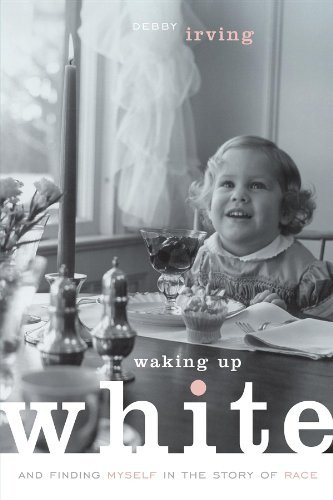
Waking Up White is the book Irving wishes someone had handed her decades ago. By sharing her sometimes cringe-worthy struggle to understand racism and racial tensions, she offers a fresh perspective on bias, stereotypes, manners, and tolerance. As Irving unpacks her own long-held beliefs about colorblindness, being a good person, and wanting to help people of color, she reveals how each of these well-intentioned mindsets actually perpetuated her ill-conceived ideas about race. She also explains why and how she's changed the way she talks about racism, works in racially mixed groups, and understands the antiracism movement as a whole. Exercises at the end of each chapter prompt readers to explore their own racialized ideas. Waking Up White's personal narrative is designed to work well as a rapid read, a book group book, or support reading for courses exploring racial and cultural issues.
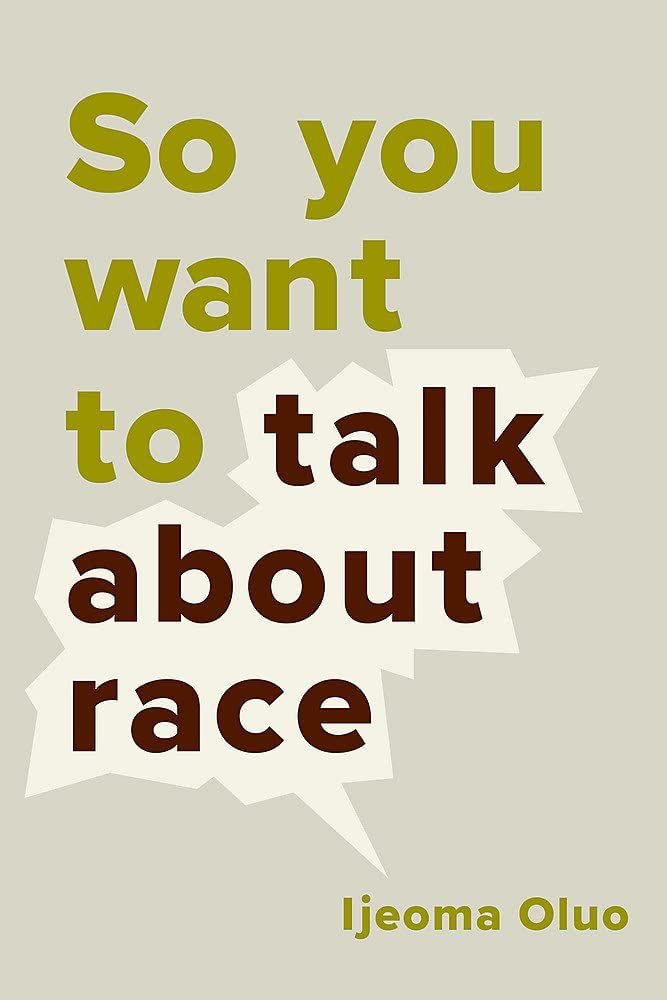
by Ijeoma Oluo (Author)
4.7 out of 5 stars 12,485 ratings
See all formats and editions
Kindle
$3.99 after credits Plus, earn a $1.10 creditRead with Our Free App
Audiobook
$0.00 Free with your Audible trial
Hardcover
$15.99
159 Used from $1.59 34 New from $2.44
305 Used from $1.39 54 New from $6.99 1 Collectible from $7.00
Great on Kindle
Great Experience. Great Value.
Enjoy a great reading experience, with a $1.10 credit back to spend on your next Great on Kindle book when you buy the Kindle edition of this book. Learn more about Great on Kindle, available in select categories.
In this #1 New York Times bestseller, Ijeoma Oluo offers a revelatory examination of race in America
Protests against racial injustice and white supremacy have galvanized millions around the world. The stakes for transformative conversations about race could not be higher. Still, the task ahead seems daunting, and it’s hard to know where to start. How do you tell your boss her jokes are racist? Why did your sister-in-law hang up on you when you had questions about police reform? How do you explain white privilege to your white, privileged friend?
In So You Want to Talk About Race, Ijeoma Oluo guides readers of all races through subjects ranging from police brutality and cultural appropriation to the model minority myth in an attempt to make the seemingly impossible possible: honest conversations about race, and about how racism infects every aspect of American life.
"Simply put: Ijeoma Oluo is a necessary voice and intellectual for these times, and any time, truth be told." ―Phoebe Robinson, New York Times bestselling author of You Can't Touch My Hair
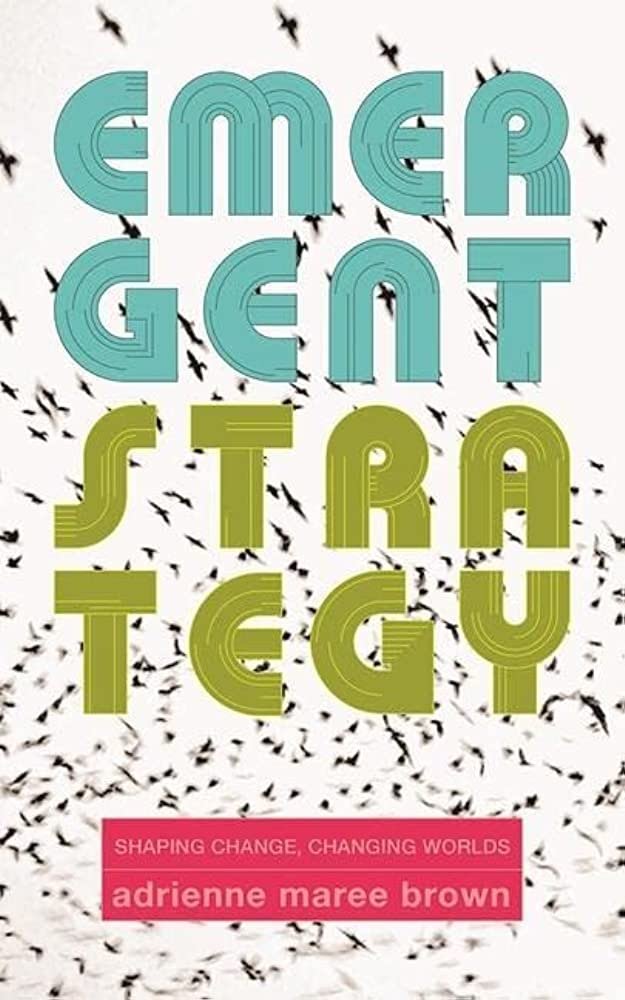
In the tradition of Octavia Butler, radical self-help, society-help, and planet-help to shape the futures we want.
Inspired by Octavia Butler's explorations of our human relationship to change, Emergent Strategy is radical self-help, society-help, and planet-help designed to shape the futures we want to live. Change is constant. The world is in a continual state of flux. It is a stream of ever-mutating, emergent patterns. Rather than steel ourselves against such change, this book invites us to feel, map, assess, and learn from the swirling patterns around us in order to better understand and influence them as they happen. This is a resolutely materialist “spirituality” based equally on science and science fiction, a visionary incantation to transform that which ultimately transforms us.
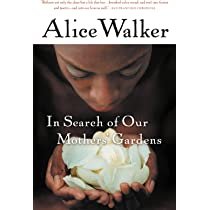
Pulitzer Prize–winning author of The Color Purple, Alice Walker's collection of essays ranging in topics from personal to political. "Thoughtful, intelligent, resonant musings." — Kirkus Reviews
In this, her first collection of nonfiction, Alice Walker speaks out as a black woman, writer, mother, and feminist. Among the thirty-six pieces are essays about other writers, accounts of the civil rights movement of the 1960s and the anti-nuclear movement of the 1980s, and a vivid memoir of a scarring childhood injury and her daughter’s healing words.
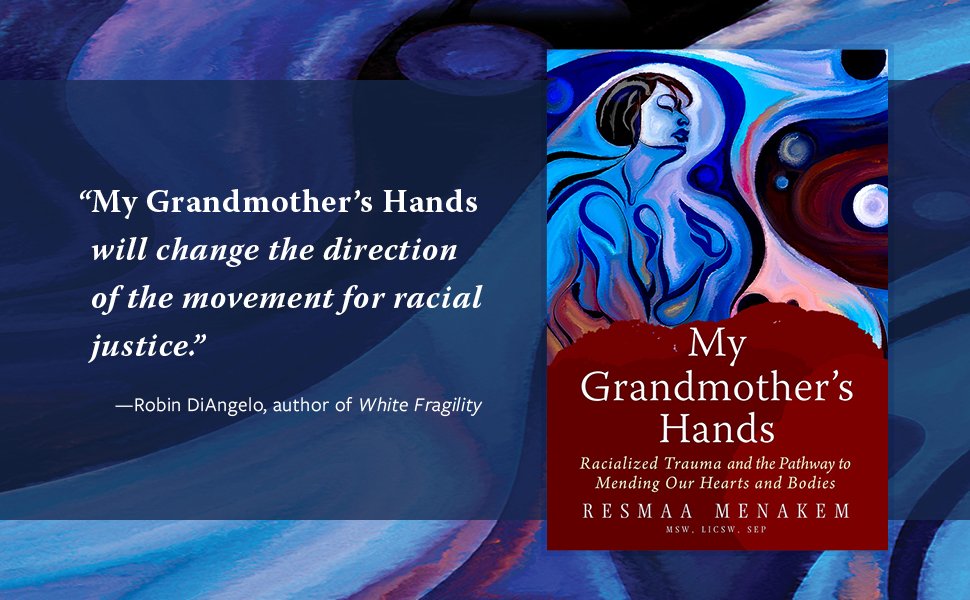
A NATIONAL BESTSELLER
"My Grandmother's Hands will change the direction of the movement for racial justice."— Robin DiAngelo, New York Times bestselling author of White Fragility
In this groundbreaking book, therapist Resmaa Menakem examines the damage caused by racism in America from the perspective of trauma and body-centered psychology.
The body is where our instincts reside and where we fight, flee, or freeze, and it endures the trauma inflicted by the ills that plague society. Menakem argues this destruction will continue until Americans learn to heal the generational anguish of white supremacy, which is deeply embedded in all our bodies. Our collective agony doesn't just affect African Americans. White Americans suffer their own secondary trauma as well. So do blue Americans—our police.
My Grandmother's Hands is a call to action for all of us to recognize that racism is not only about the head, but about the body, and introduces an alternative view of what we can do to grow beyond our entrenched racialized divide.
Paves the way for a new, body-centered understanding of white supremacy—how it is literally in our blood and our nervous system.
Offers a step-by-step healing process based on the latest neuroscience and somatic healing methods, in addition to incisive social commentary.
Resmaa Menakem, MSW, LICSW, SEP, is a leading voice in today’s conversation on racialized trauma and the creator of Cultural Somatics, which utilizes the body and its natural resilience as mechanisms for growth. As a therapist and the founder of Justice Leadership Solutions, a leadership consulting firm, Resmaa dedicates his expertise to coaching leaders through civil unrest, organizational change, and community building
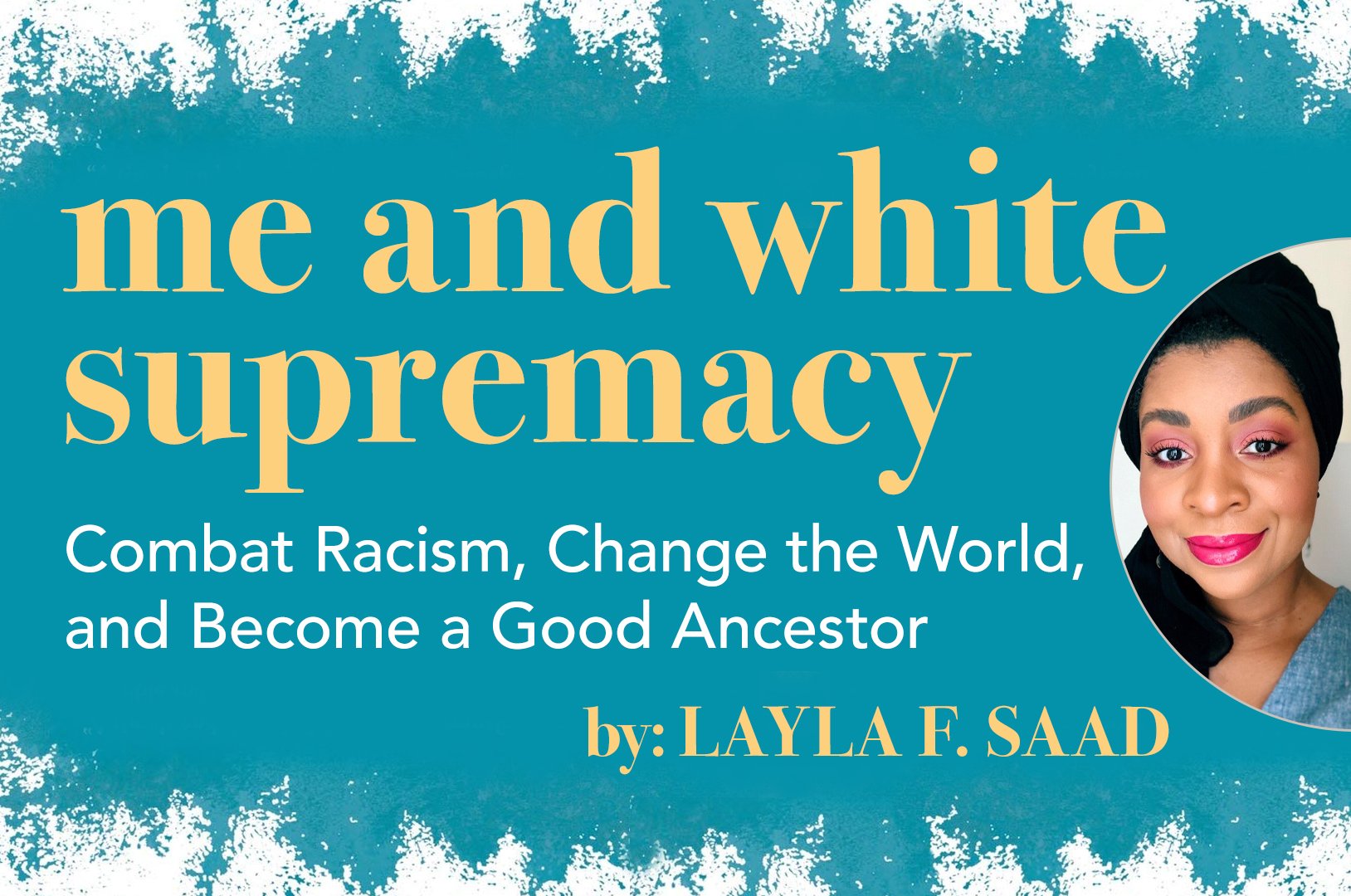
The New York Times and USA Today bestseller! This eye-opening book challenges you to do the essential work of unpacking your biases, and helps white people take action and dismantle the privilege within themselves so that you can stop (often unconsciously) inflicting damage on people of color, and in turn, help other white people do better, too.
"Layla Saad is one of the most important and valuable teachers we have right now on the subject of white supremacy and racial injustice."―New York Times bestselling author Elizabeth Gilbert
Based on the viral Instagram challenge that captivated participants worldwide, Me and White Supremacy takes readers on a 28-day journey, complete with journal prompts, to do the necessary and vital work that can ultimately lead to improving race relations.
Updated and expanded from the original workbook (downloaded by nearly 100,000 people), this critical text helps you take the work deeper by adding more historical and cultural contexts, sharing moving stories and anecdotes, and including expanded definitions, examples, and further resources, giving you the language to understand racism, and to dismantle your own biases, whether you are using the book on your own, with a book club, or looking to start family activism in your own home.
This book will walk you step-by-step through the work of examining:
Examining your own white privilege
What allyship really means
Anti-blackness, racial stereotypes, and cultural appropriation
Changing the way that you view and respond to race
How to continue the work to create social change
Awareness leads to action, and action leads to change. For readers of White Fragility, White Rage, So You Want To Talk About Race, The New Jim Crow, How to Be an Anti-Racist and more who are ready to closely examine their own beliefs and biases and do the work it will take to create social change.
"Layla Saad moves her readers from their heads into their hearts, and ultimately, into their practice. We won't end white supremacy through an intellectual understanding alone; we must put that understanding into action."―Robin DiAngelo, author of New York Times bestseller White Fragility
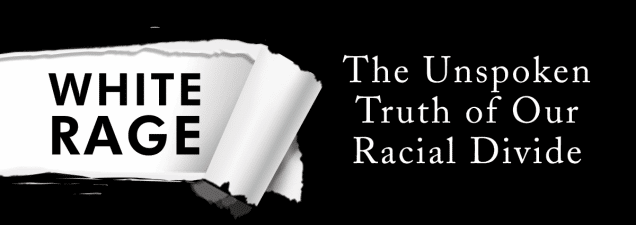
As Ferguson, Missouri, erupted in August 2014, and media commentators across the ideological spectrum referred to the angry response of African Americans as 'black rage', historian Carol Anderson wrote a remarkable op-ed in the Washington Post showing that this was, instead, 'white rage at work. With so much attention on the flames,' she wrote, 'everyone had ignored the kindling.'
Since 1865 and the passage of the Thirteenth Amendment, every time African Americans have made advances towards full participation in our democracy, white reaction has fueled a deliberate and relentless rollback of their gains. The end of the Civil War and Reconstruction was greeted with the Black Codes and Jim Crow; the Supreme Court's landmark 1954 Brown v. Board of Education decision was met with the shutting down of public schools throughout the South while taxpayer dollars financed segregated white private schools; the Civil Rights Act of 1964 and Voting Rights Act of 1965 triggered a coded but powerful response, the so-called Southern Strategy and the War on Drugs that disenfranchised millions of African Americans while propelling presidents Nixon and Reagan into the White House.
Carefully linking these and other historical flashpoints when social progress for African Americans was countered by deliberate and cleverly crafted opposition, Anderson pulls back the veil that has long covered actions made in the name of protecting democracy, fiscal responsibility, or protection against fraud, rendering visible the long lineage of white rage.
Compelling and dramatic in the unimpeachable history it relates, White Rage will add an important new dimension to the national conversation about race in America.
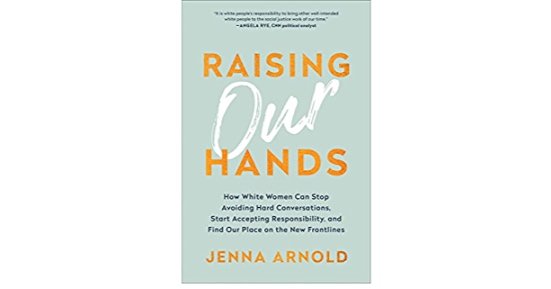
White women are one of the most influential demographics in America—we are the largest voting bloc, with purchasing power that exceeds anybody else's, and when we unify to demand change, we are a force to be reckoned with.
Yet, so many of us sit idly on the sidelines, opting out of raising our hands to do, learn, and engage in ways that could make a difference. Why?
White American women are no monolith. Yet, as Women's March national organizer Jenna Arnold has learned over the past few years criss-crossing the US in conversations with white women about their identity and role in the country, we do possess common characteristics—ones that get in the way of us becoming more engaged as citizens. We're so focused on checking off our to-do lists, or so afraid of getting it wrong, or so busy trying to avoid conflict, that we are actively avoiding the urgent conversations we need to have.
We are confused about how we got here and unsure how to do better.
Raising Our Hands is the reckoning cry for white women. It asks us to step up and join the new frontlines of the fight against complacency—in our homes, in our behaviors, and in our own minds.
Consider Raising Our Hands your starting place, your "Intro to Being a White Woman in Today's World" freshman-year class. In these pages, Jenna peels back the history that's been kept out of textbooks and the cultural norms that are holding us back, so we can finally start really listening to marginalized voices and doing our part to promote progress.
The American white woman is a powerful force—an essential participant—to mobilize alongside the rest of humanity on behalf of the world, and we can no longer make excuses for why we don't have time or don't know enough.
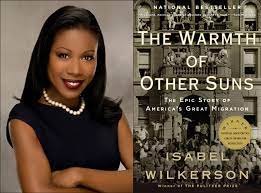
NATIONAL BOOK CRITICS CIRCLE AWARD WINNER • NEW YORK TIMES BESTSELLER • In this beautifully written masterwork, the Pulitzer Prize–winnner and bestselling author of Caste chronicles one of the great untold stories of American history: the decades-long migration of black citizens who fled the South for northern and western cities, in search of a better life.
From 1915 to 1970, this exodus of almost six million people changed the face of America. Wilkerson compares this epic migration to the migrations of other peoples in history. She interviewed more than a thousand people, and gained access to new data and official records, to write this definitive and vividly dramatic account of how these American journeys unfolded, altering our cities, our country, and ourselves.
With stunning historical detail, Wilkerson tells this story through the lives of three unique individuals: Ida Mae Gladney, who in 1937 left sharecropping and prejudice in Mississippi for Chicago, where she achieved quiet blue-collar success and, in old age, voted for Barack Obama when he ran for an Illinois Senate seat; sharp and quick-tempered George Starling, who in 1945 fled Florida for Harlem, where he endangered his job fighting for civil rights, saw his family fall, and finally found peace in God; and Robert Foster, who left Louisiana in 1953 to pursue a medical career, the personal physician to Ray Charles as part of a glitteringly successful medical career, which allowed him to purchase a grand home where he often threw exuberant parties.
Wilkerson brilliantly captures their first treacherous and exhausting cross-country trips by car and train and their new lives in colonies that grew into ghettos, as well as how they changed these cities with southern food, faith, and culture and improved them with discipline, drive, and hard work. Both a riveting microcosm and a major assessment, The Warmth of Other Suns is a bold, remarkable, and riveting work, a superb account of an “unrecognized immigration” within our own land. Through the breadth of its narrative, the beauty of the writing, the depth of its research, and the fullness of the people and lives portrayed herein, this book is destined to become a classic.
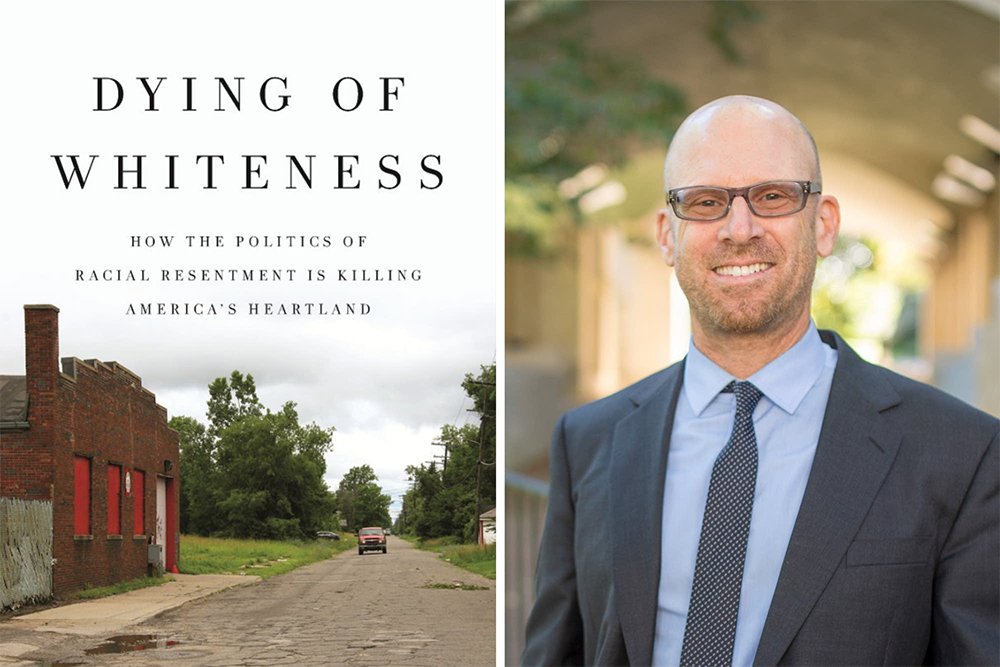
A physician reveals how right-wing backlash policies have mortal consequences -- even for the white voters they promise to help
Named one of the most anticipated books of 2019 by Esquire and the Boston Globe
In the era of Donald Trump, many lower- and middle-class white Americans are drawn to politicians who pledge to make their lives great again. But as Dying of Whiteness shows, the policies that result actually place white Americans at ever-greater risk of sickness and death.
Physician Jonathan M. Metzl's quest to understand the health implications of "backlash governance" leads him across America's heartland.Interviewing a range of everyday Americans, he examines how racial resentment has fueled progun laws in Missouri, resistance to the Affordable Care Act in Tennessee, and cuts to schools and social services in Kansas. And he shows these policies' costs: increasing deaths by gun suicide, falling life expectancies, and rising dropout rates. White Americans, Metzl argues, must reject the racial hierarchies that promise to aid them but in fact lead our nation to demise.
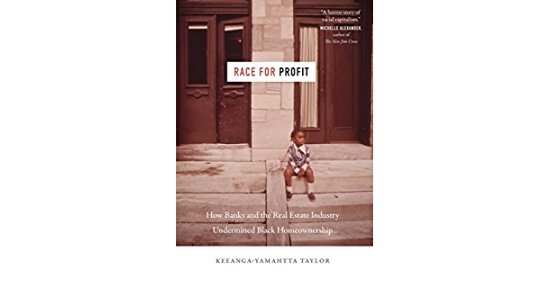
LONGLISTED FOR THE 2019 NATIONAL BOOK AWARD
FINALIST, 2020 PULITZER PRIZE IN HISTORY
By the late 1960s and early 1970s, reeling from a wave of urban uprisings, politicians finally worked to end the practice of redlining. Reasoning that the turbulence could be calmed by turning Black city-dwellers into homeowners, they passed the Housing and Urban Development Act of 1968, and set about establishing policies to induce mortgage lenders and the real estate industry to treat Black homebuyers equally. The disaster that ensued revealed that racist exclusion had not been eradicated, but rather transmuted into a new phenomenon of predatory inclusion.
Race for Profit uncovers how exploitative real estate practices continued well after housing discrimination was banned. The same racist structures and individuals remained intact after redlining's end, and close relationships between regulators and the industry created incentives to ignore improprieties. Meanwhile, new policies meant to encourage low-income homeownership created new methods to exploit Black homeowners. The federal government guaranteed urban mortgages in an attempt to overcome resistance to lending to Black buyers – as if unprofitability, rather than racism, was the cause of housing segregation. Bankers, investors, and real estate agents took advantage of the perverse incentives, targeting the Black women most likely to fail to keep up their home payments and slip into foreclosure, multiplying their profits. As a result, by the end of the 1970s, the nation's first programs to encourage Black homeownership ended with tens of thousands of foreclosures in Black communities across the country. The push to uplift Black homeownership had descended into a goldmine for realtors and mortgage lenders, and a ready-made cudgel for the champions of deregulation to wield against government intervention of any kind.
Narrating the story of a sea-change in housing policy and its dire impact on African Americans, Race for Profit reveals how the urban core was transformed into a new frontier of cynical extraction.
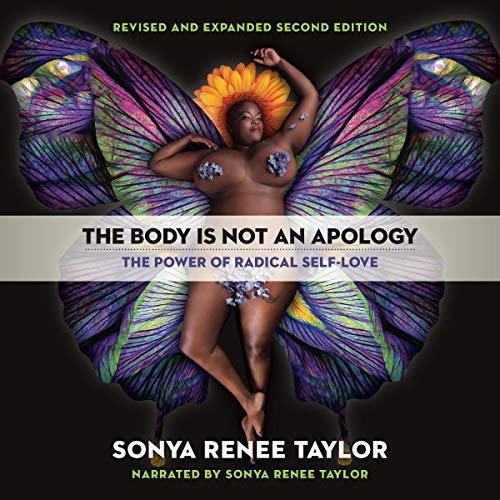
"To build a world that works for everyone, we must first make the radical decision to love every facet of ourselves...'The body is not an apology' is the mantra we should all embrace."
--Kimberlé Crenshaw, legal scholar and founder and Executive Director, African American Policy Forum
"Taylor invites us to break up with shame, to deepen our literacy, and to liberate our practice of celebrating every body and never apologizing for this body that is mine and takes care of me so well."
--Alicia Garza, cocreator of the Black Lives Matter Global Network and Strategy + Partnerships Director, National Domestic Workers Alliance
"Her manifesto on radical self-love is life altering--required reading for anyone who struggles with body image."
--Claire Foster, Foreword Review
Humans are a varied and divergent bunch with all manner of beliefs, morals, and bodies. Systems of oppression thrive off our inability to make peace with difference and injure the relationship we have with our own bodies.
The Body Is Not an Apology offers radical self-love as the balm to heal the wounds inflicted by these violent systems. World-renowned activist and poet Sonya Renee Taylor invites us to reconnect with the radical origins of our minds and bodies and celebrate our collective, enduring strength. As we awaken to our own indoctrinated body shame, we feel inspired to awaken others and to interrupt the systems that perpetuate body shame and oppression against all bodies. When we act from this truth on a global scale, we usher in the transformative opportunity of radical self-love, which is the opportunity for a more just, equitable, and compassionate world--for us all.


















Articles and Blogposts

Some racism is so subtle that neither victim nor perpetrator may entirely understand what is going on—which may be especially toxic for people of color.

To redesign social systems, we need first to acknowledge their colossal unseen dimensions. The silences and denials surrounding privilege are the key political tool here. They keep the thinking about equality or equity incomplete, protecting unearned advantage and conferred dominance by making these taboo subjects.
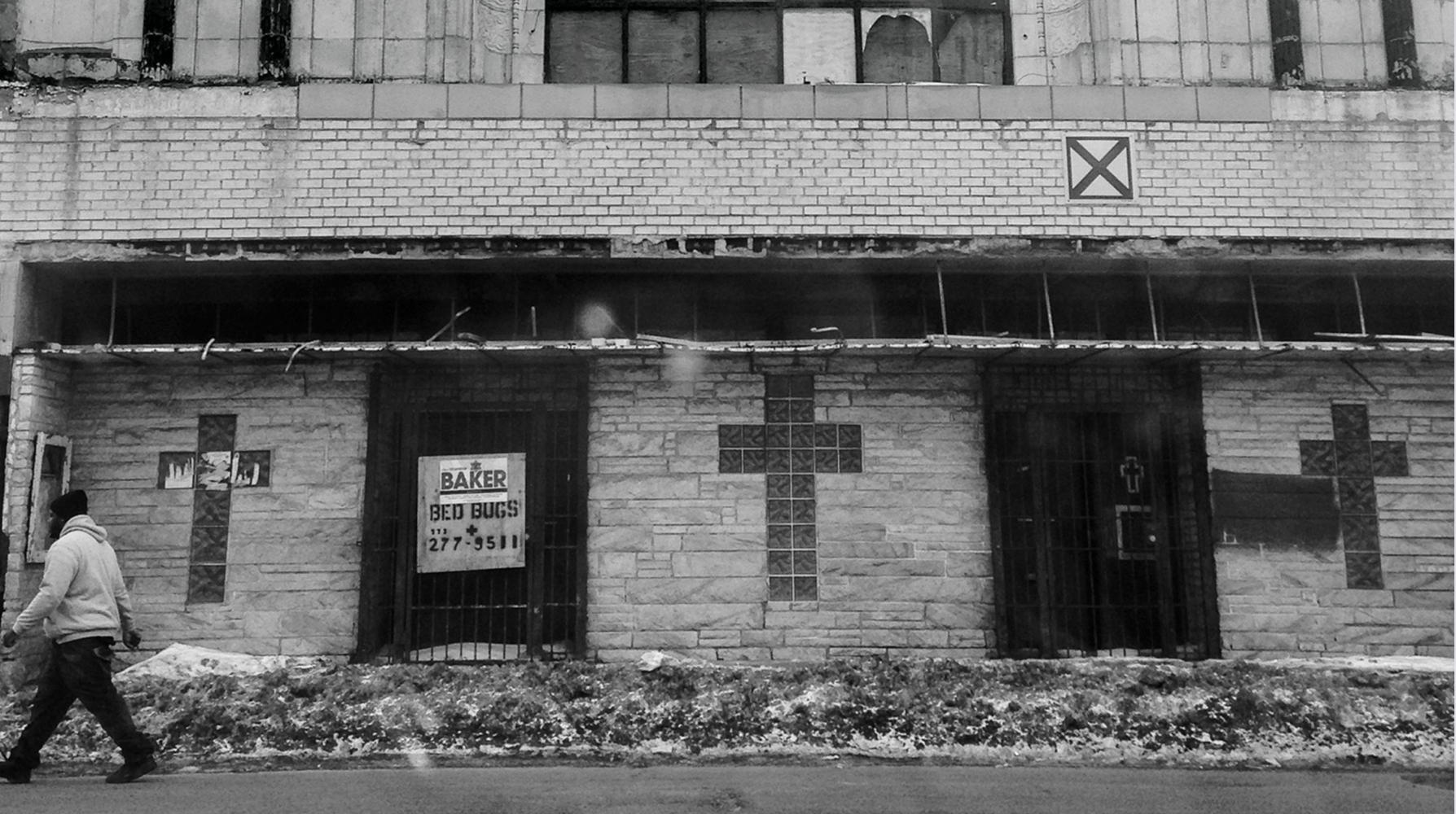
Ta-Nehisi Coates's story on why America is a broken country. He discusses America’s history of racism and discrimination, and how we must reckon our moral debts to make America whole.
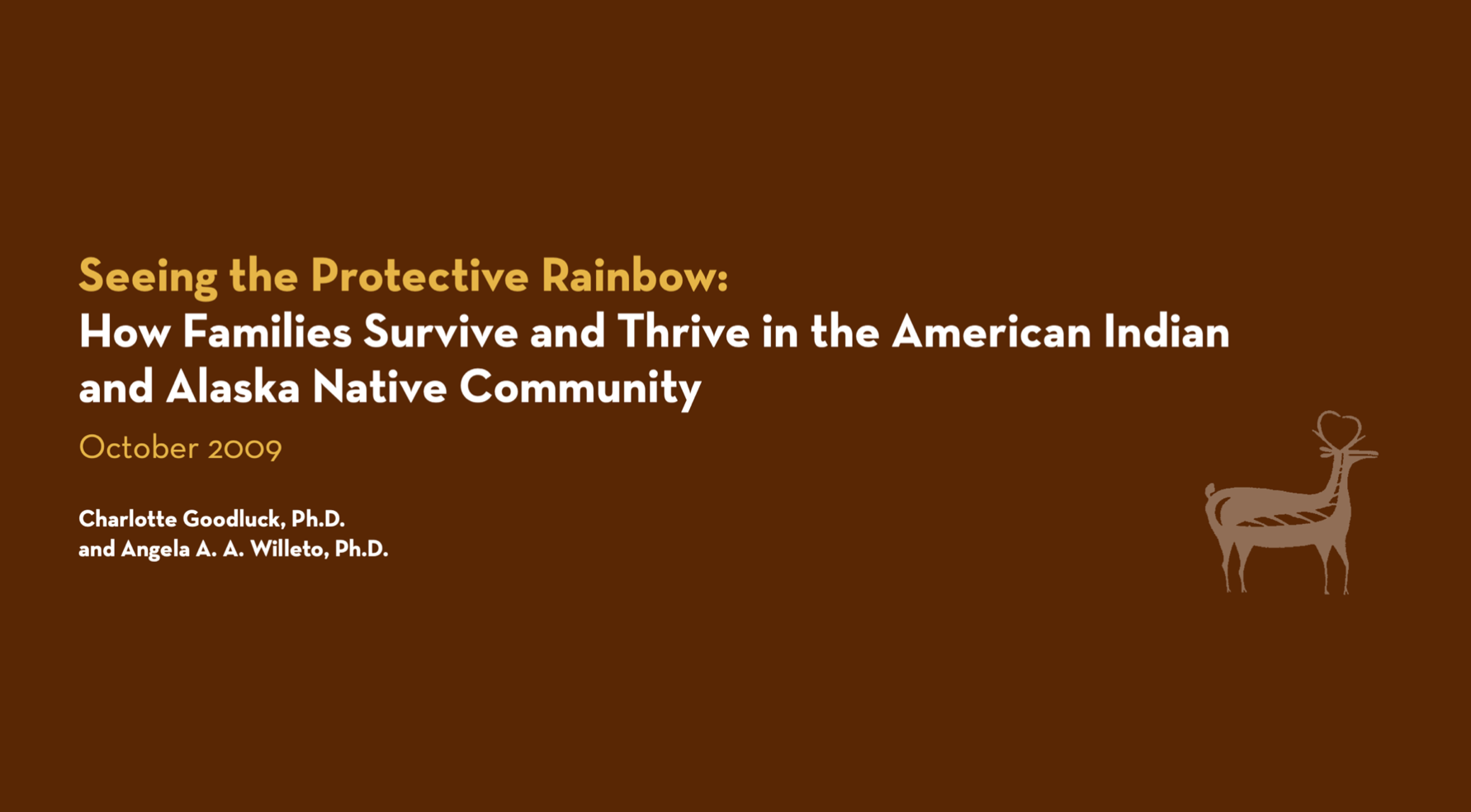
This brief summarizes a longer paper American Indian and Alaskan Native Family Resiliency: A Protective Rainbow that breaks new ground in several ways. As one of the few empirically based stud- ies on Native American family resiliency which included members of numerous tribal groups, the study explores the nature of family resiliency in tribal life today. Using first-person narratives combined with other data, the study looks at the unique resiliency themes, factors and characteristics of Native American families that
allow them to respond to adverse situations. Told from a Native perspective, the research provides practitioners, policy makers, and community-based organizations with a nuanced view of how American Indian and Alaskan Native American communities have survived, what they value, and how deeply rooted practice and beliefs have sustained them for generations.
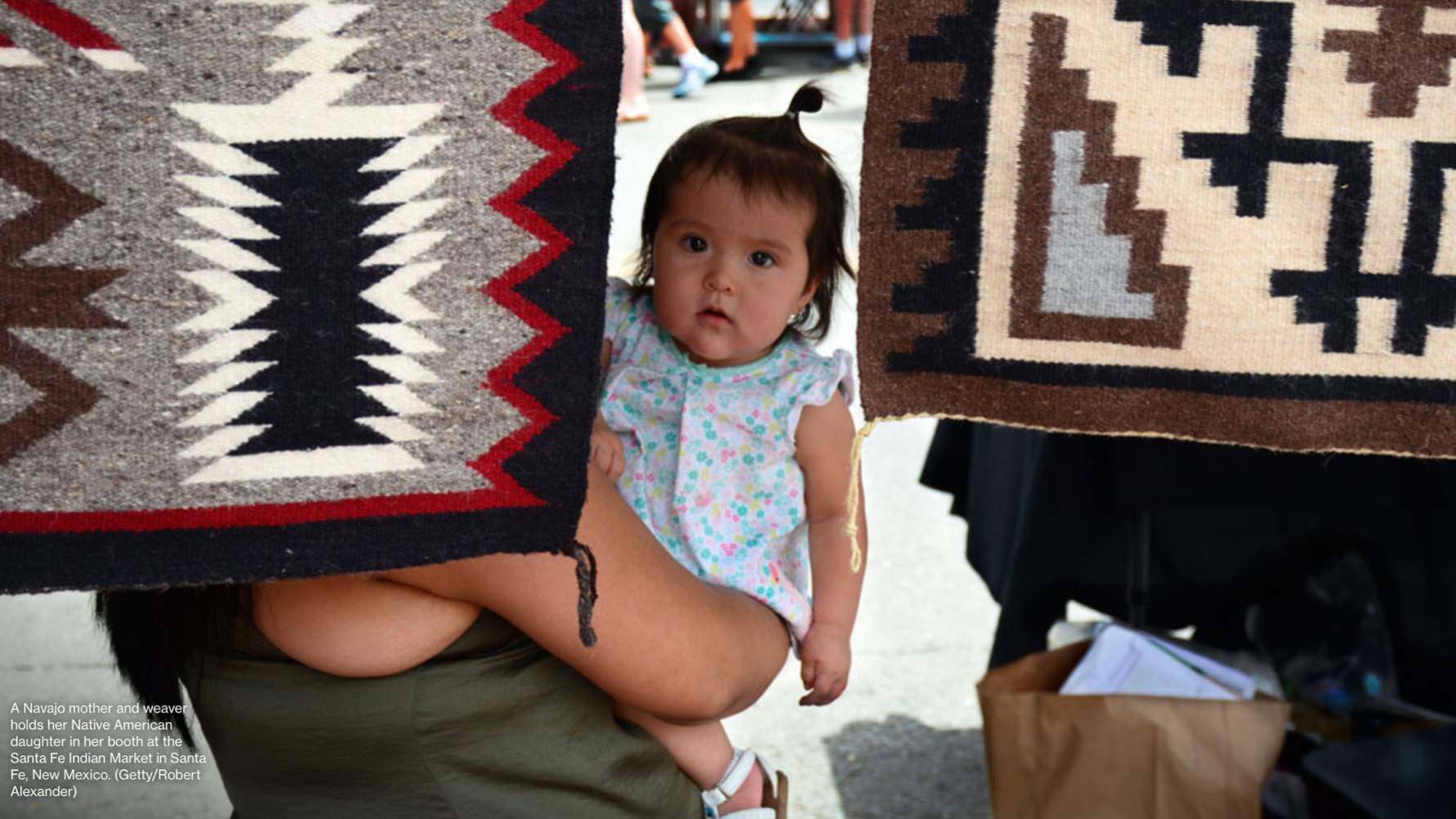
A Indians/Alaskan Natives experience unique disparities as a result of multiple factors including forced migration and cultural erasure. Pregnant women in these communities face higher risks of maternal morbidity and mortality because of this. Systems-level reforms must be made in order to see progress.
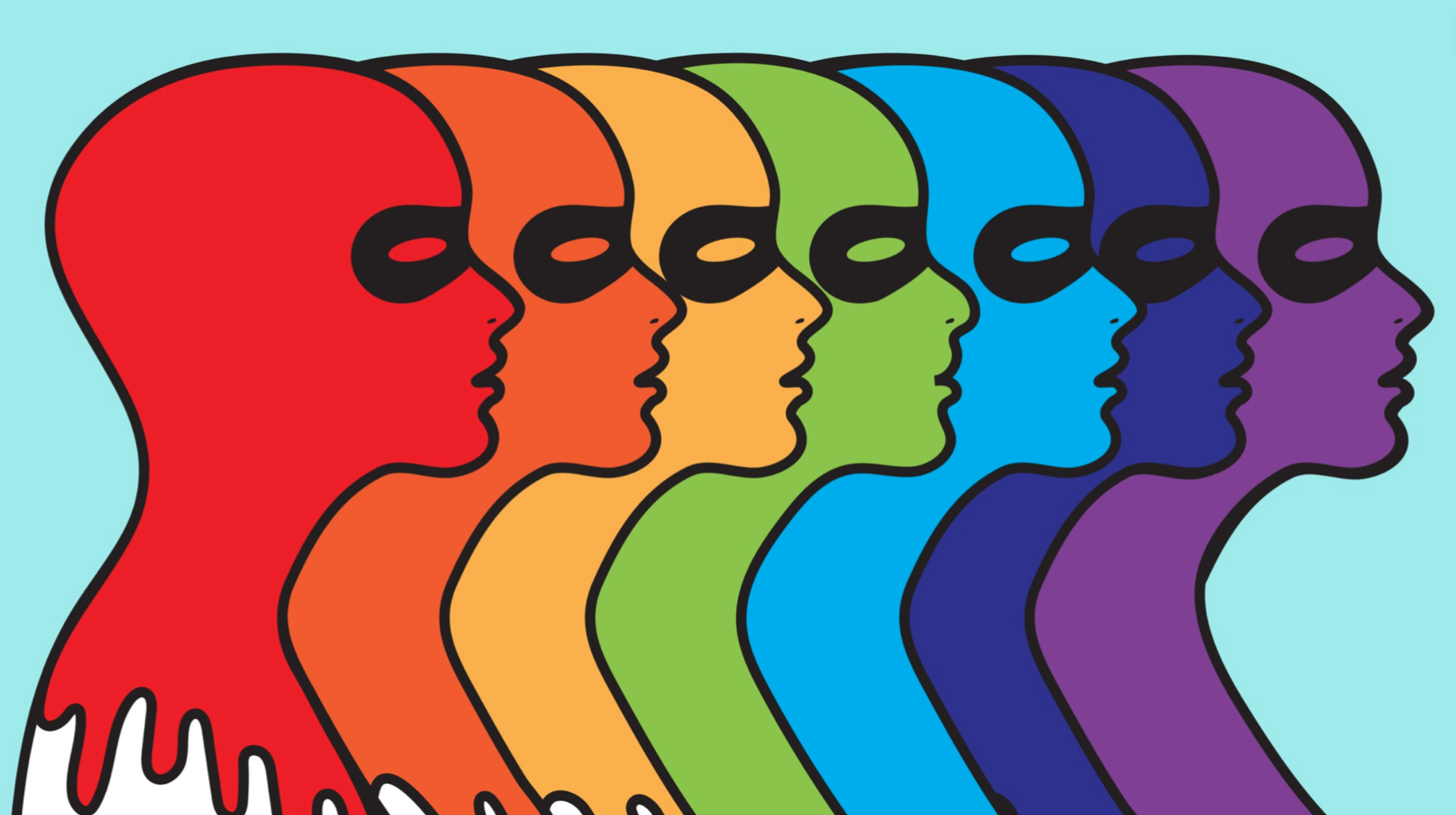
TeenVogue provides a list 52 different mental health resources targeted to help specific groups people as well as the general population.
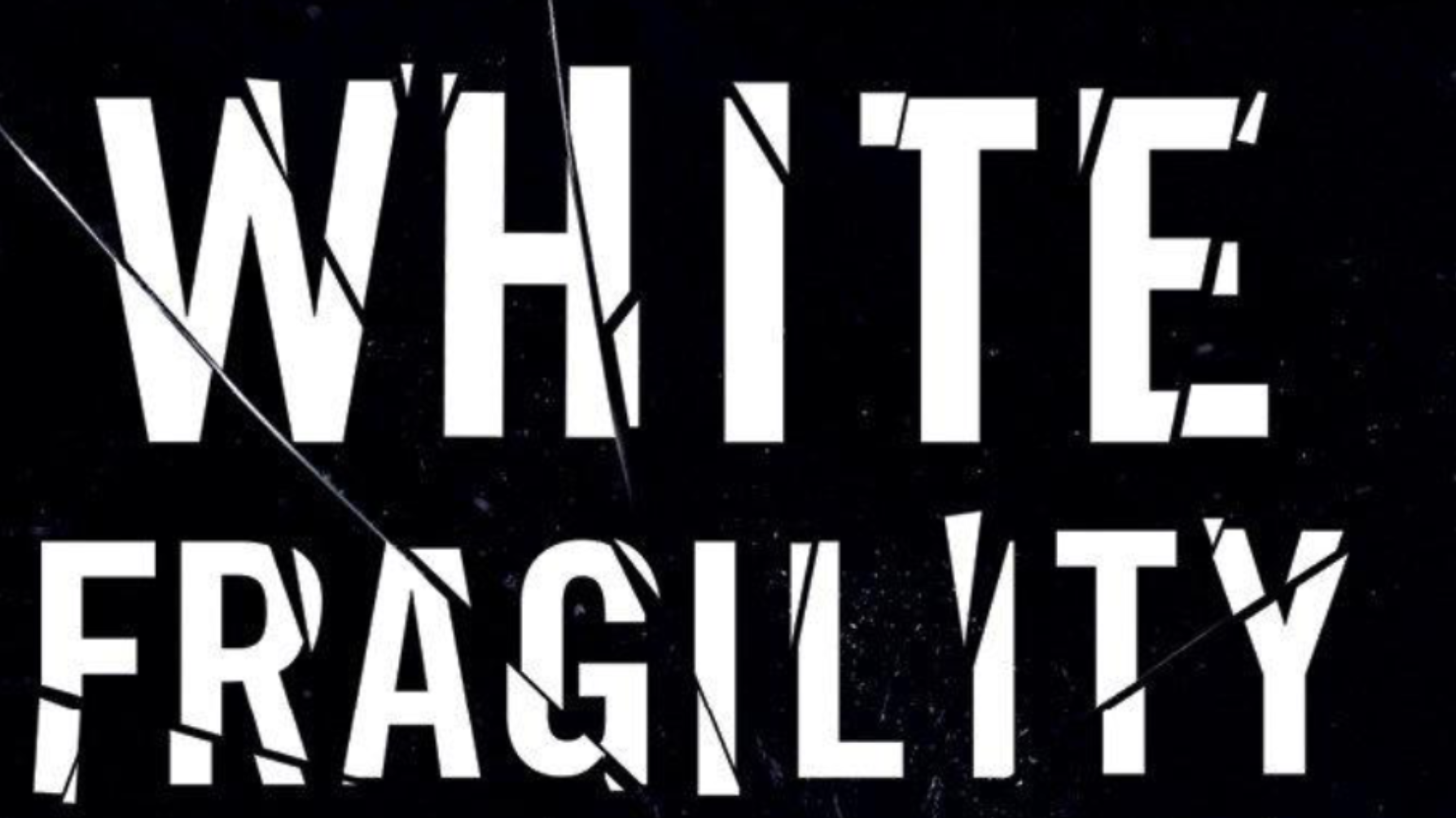
In this article, Dr. Robin DiAngelo, a white author who also wrote a book called White Fragility, suggests to other white people how to have dialogues and self reflect in order to gain a better understanding of the nuanced issues of racism in a culturally competent manner.
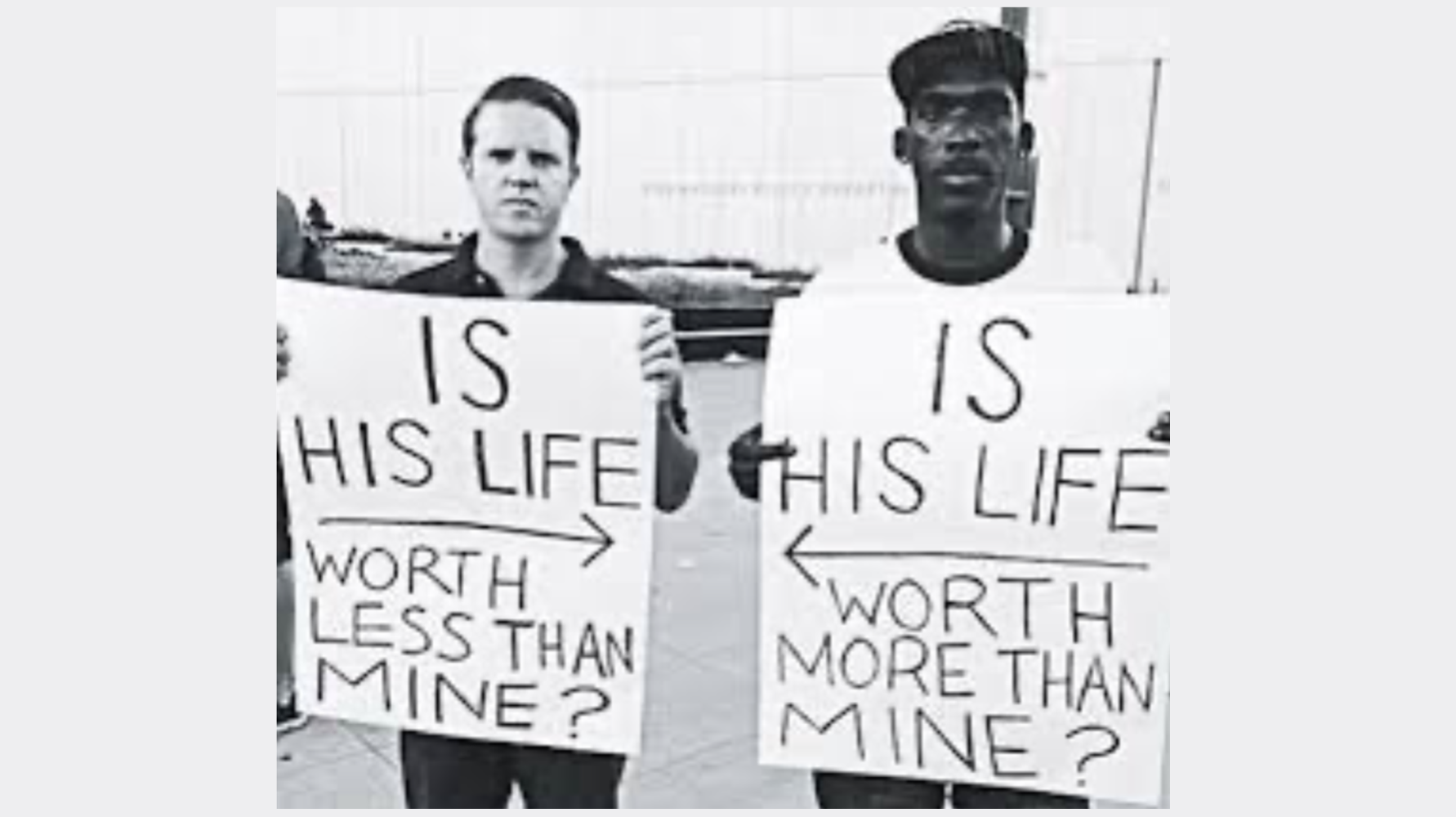
This article discusses cultural racism and white supremacy culture. It also provides links to more in-depth discussions on these two topics

This article provides tips on gender-neutral pronouns that may not be so obvious to those who do not use them personally.
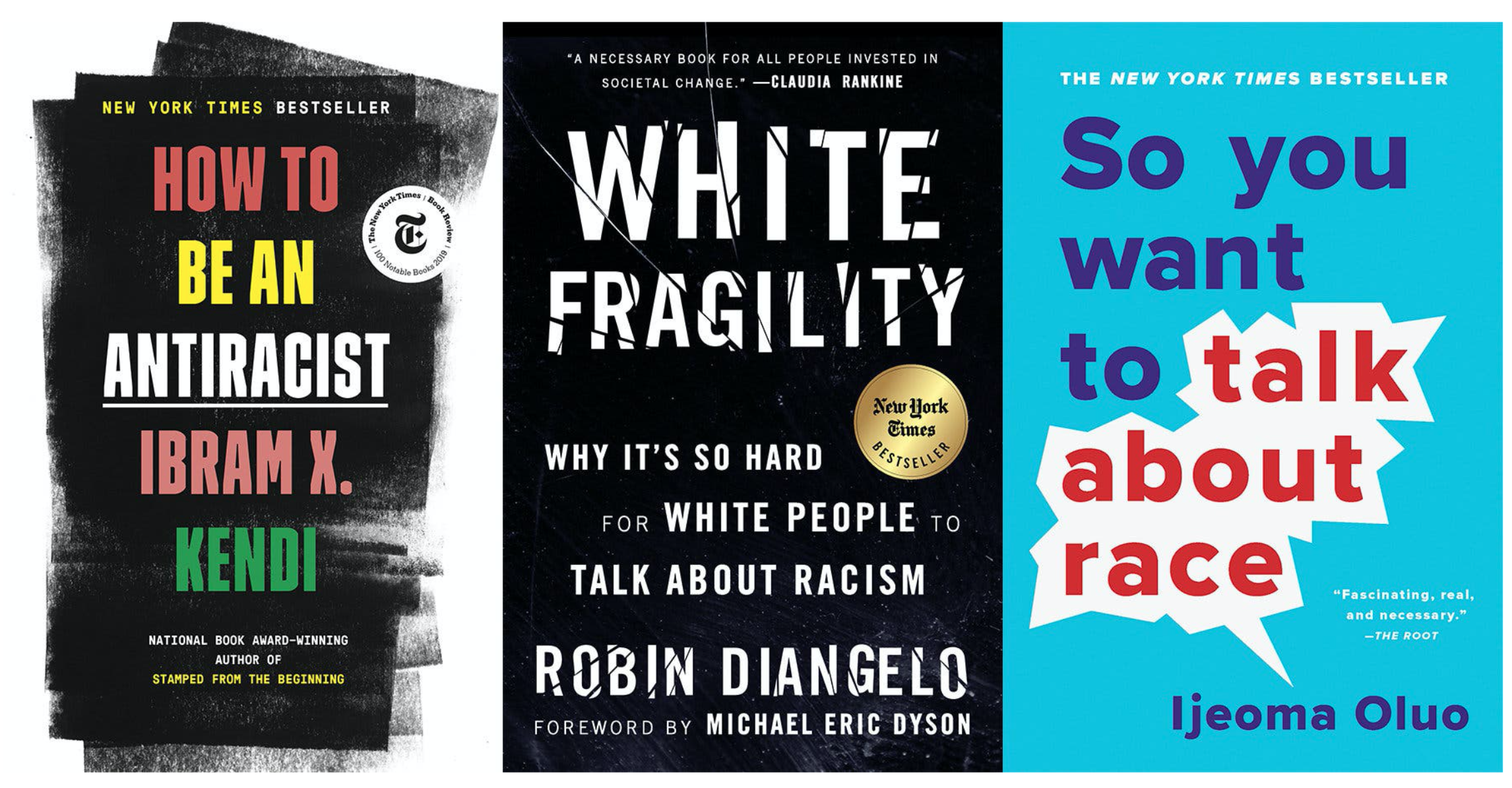
Books on the subject of racism have soared up best-seller lists as protests continue across the country. This New York Times article recommends a list of books to read regarding racism and antiracism.
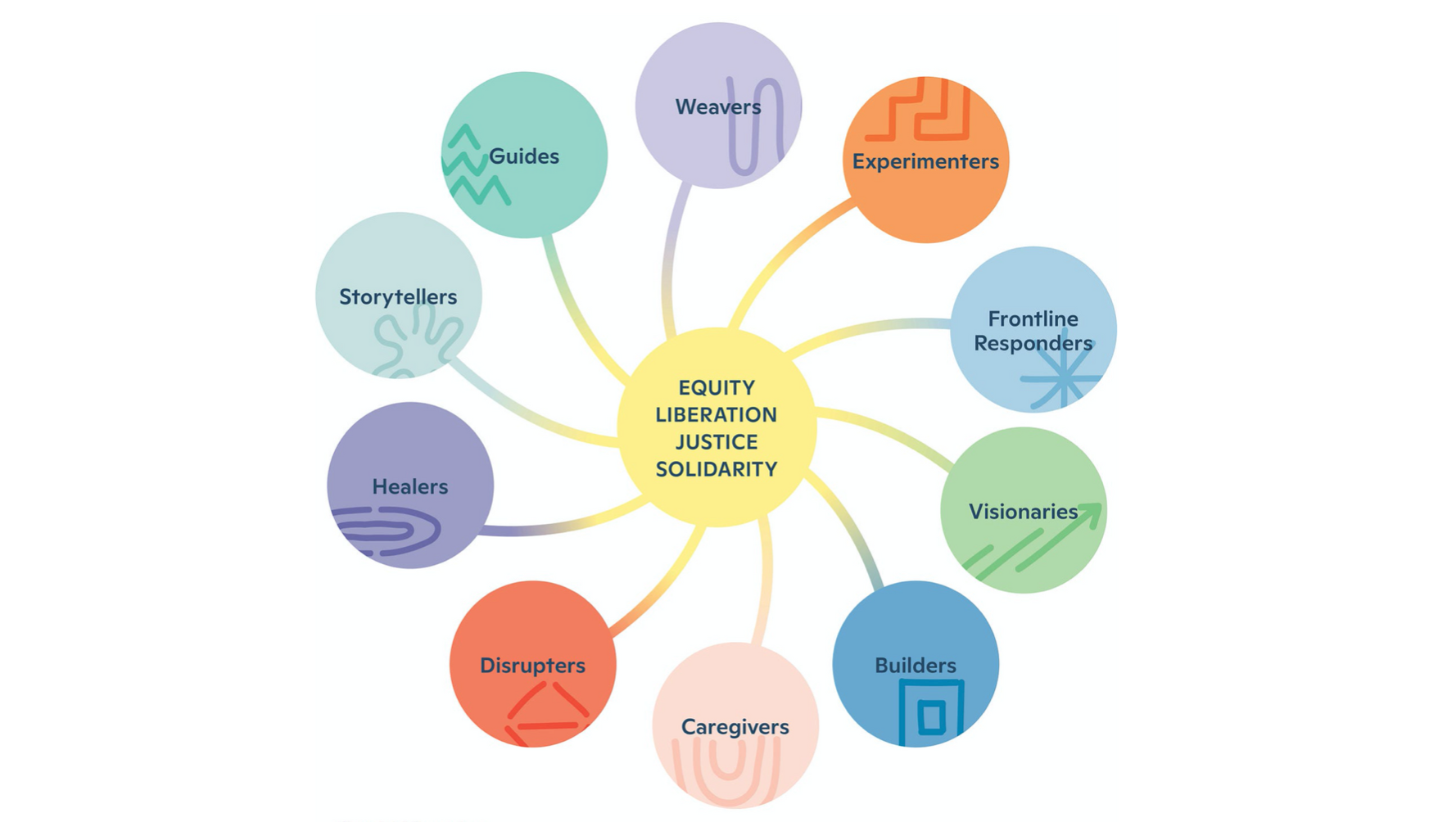
This article talks about Social Change Ecosystems and where the author fits in. Each position in the model is explained, so the reader can see where they fit in in the context of their everyday life as well as on a broader scale.
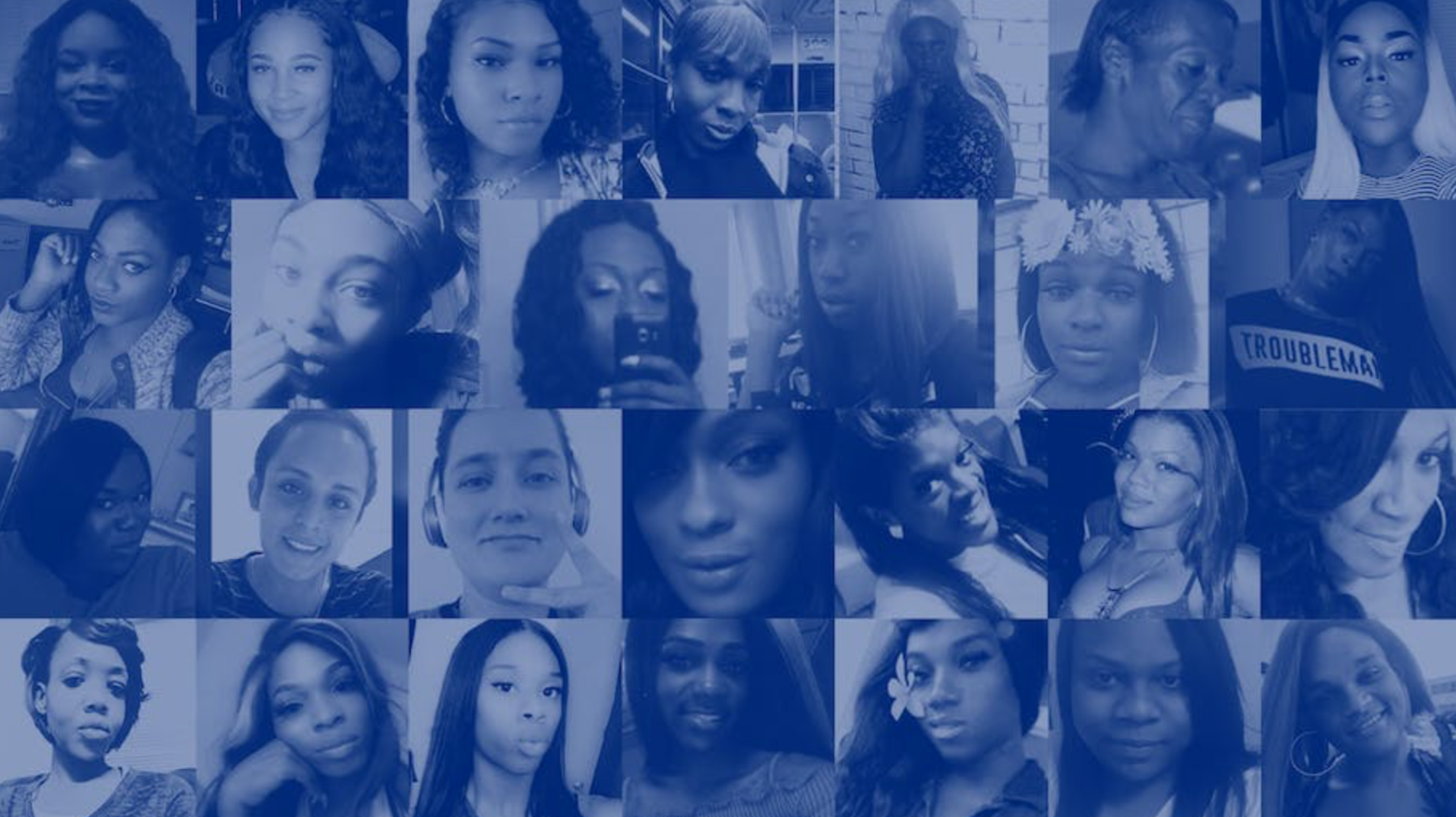
This article gives statistics on the demographics of who is typically targeted in anti-trans shootings (young Black women in the South). This report explains trends about violence towards transgender and gender-noncomforming people in the US.
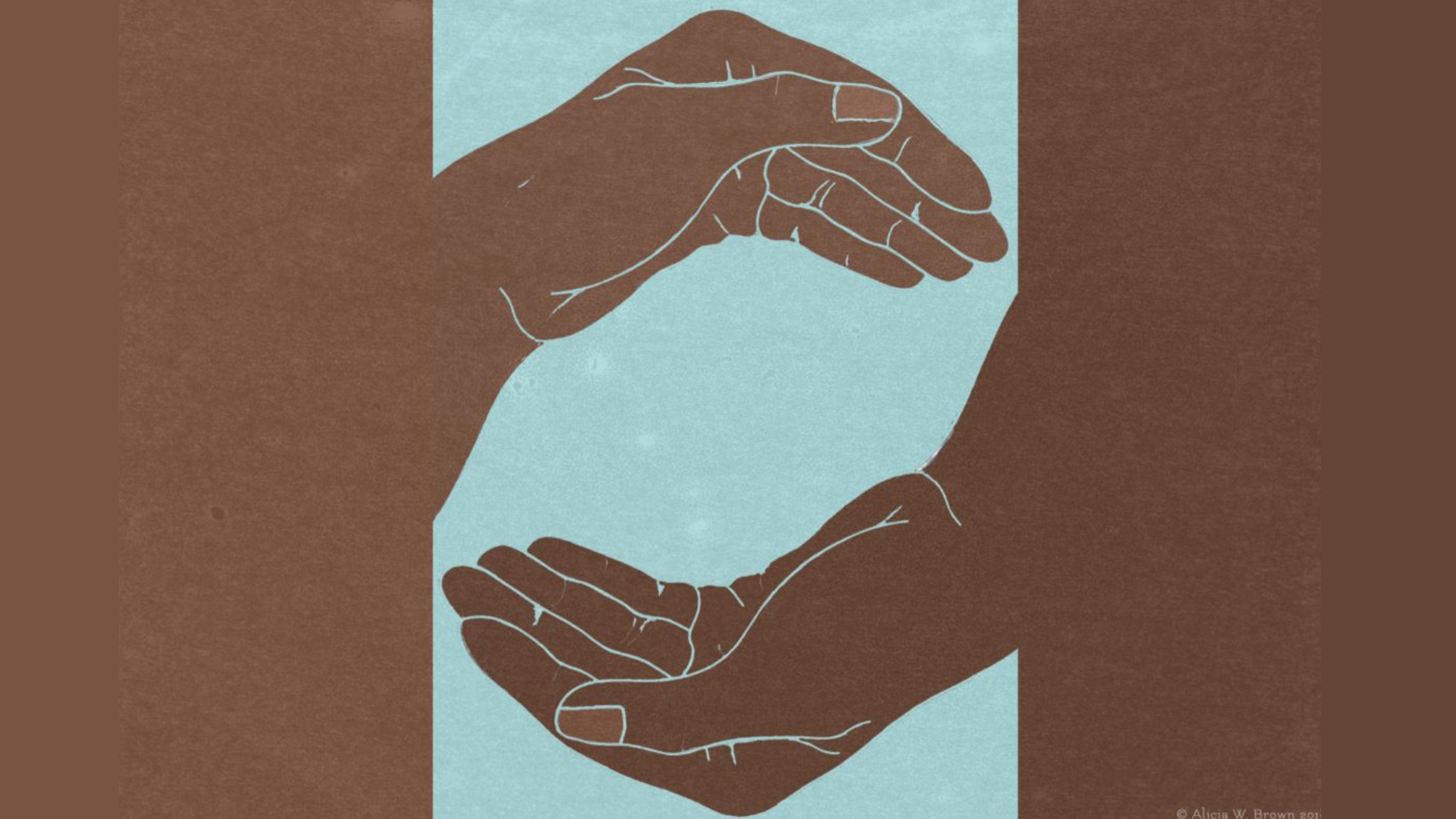
This article by Kelsey Blackwell describes why spaces specifically for POC are important. The type of support offered and the level of healing achieved is different and more impactful. Some may feel more confortable being vulnerable or sharing things that they would be judged for in other settings (or that people wouldn't relate to).
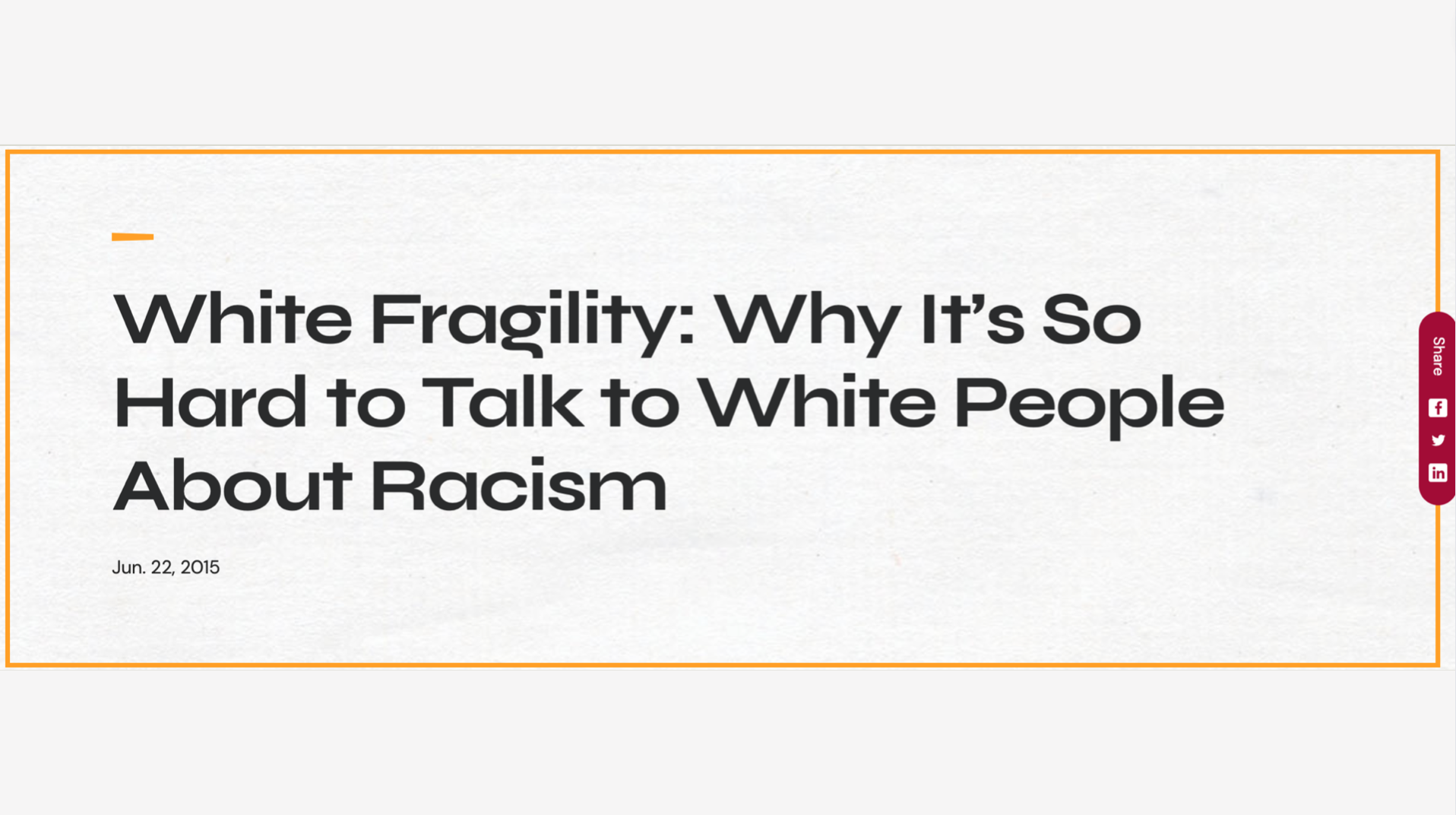
"Our socialization renders us racially illiterate".
This article discusses Dr. Robin DiAngelo’s book, White Fragility. The article talks about why America claims to not see race, but is historically and currently extremely divided by race. We form opinions about race, but they are based on emotion (which can be swayed by the media) and not on fact (ex: we don't have many comprehensive school curriculums that teach history from the perspective of anyone other than the white American man).















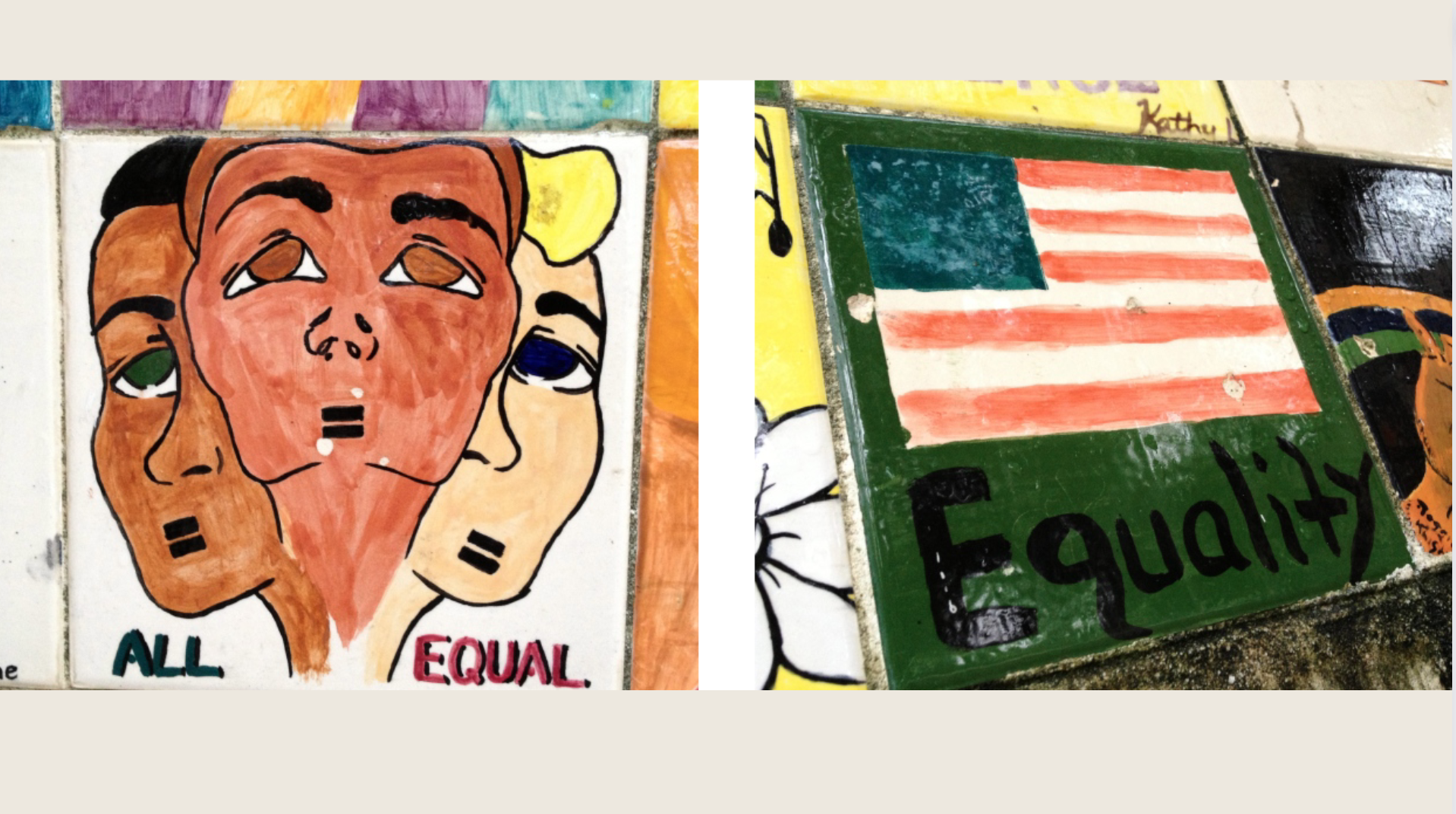
Podcasts / Videos / Webinars / Documentaries
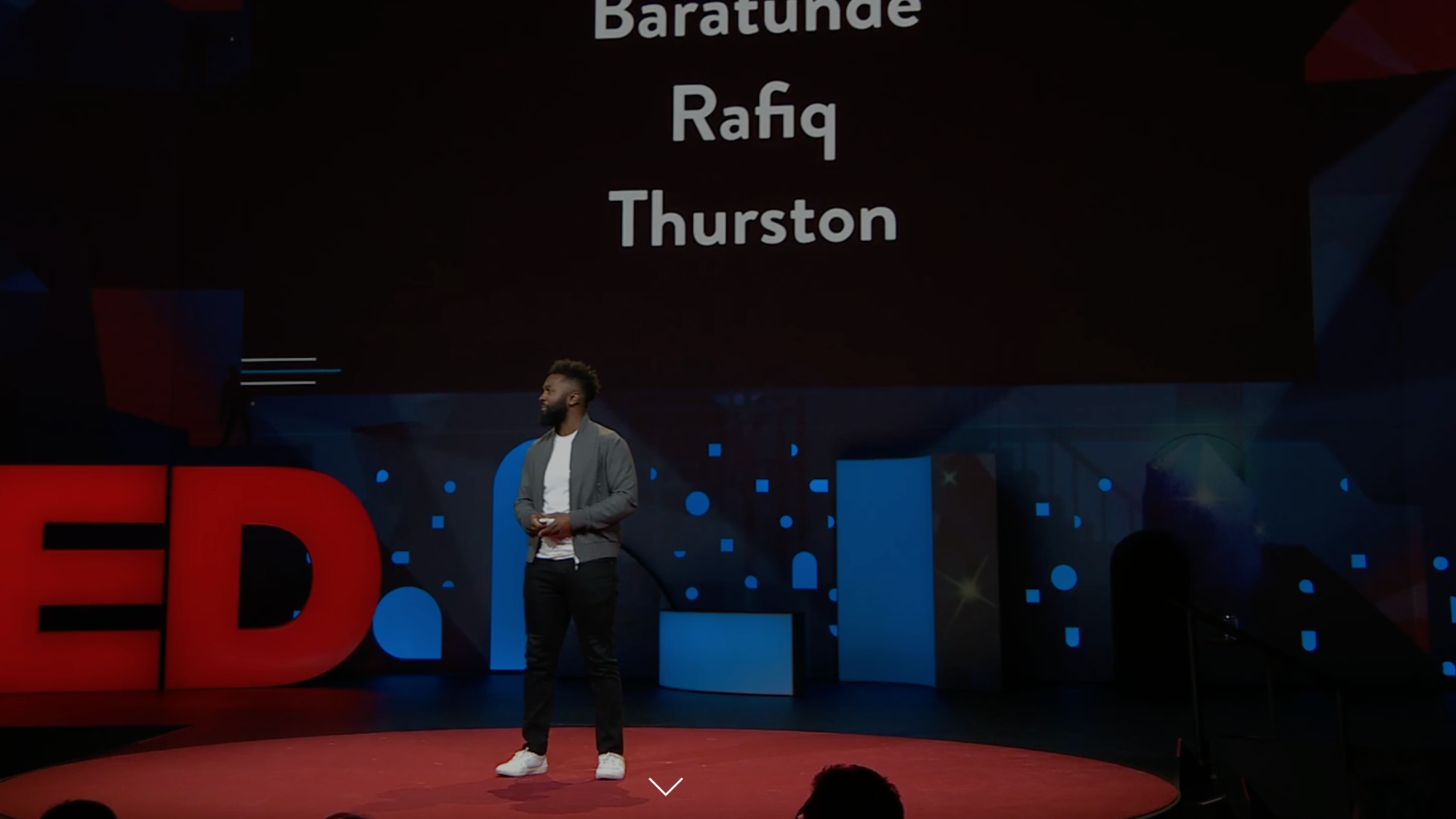
Baratunde Thurston is an Emmy-nominated, multi platform storyteller and producer operating at the intersection of race, tech, democracy, and climate. He is the host and executive producer of the PBS television series America Outdoors with Baratunde Thurston, creator and host of How To Citizen with Baratunde which Apple named one of its favorite podcasts of 2020, and a founding partner of the new media startup Puck. His comedic memoir, How To Be Black, is a New York Times best-seller. In 2019, he delivered what MSNBC’s Brian Williams called “one of the greatest TED talks of all time.” Baratunde is unique in his ability to integrate and synthesize themes of race, culture, politics, and technology to explain where our nation is and where we can take it. Baratunde serves on the boards of Civics Unplugged, BUILD.org, and the Brooklyn Public Library and lives in Los Angeles, California.
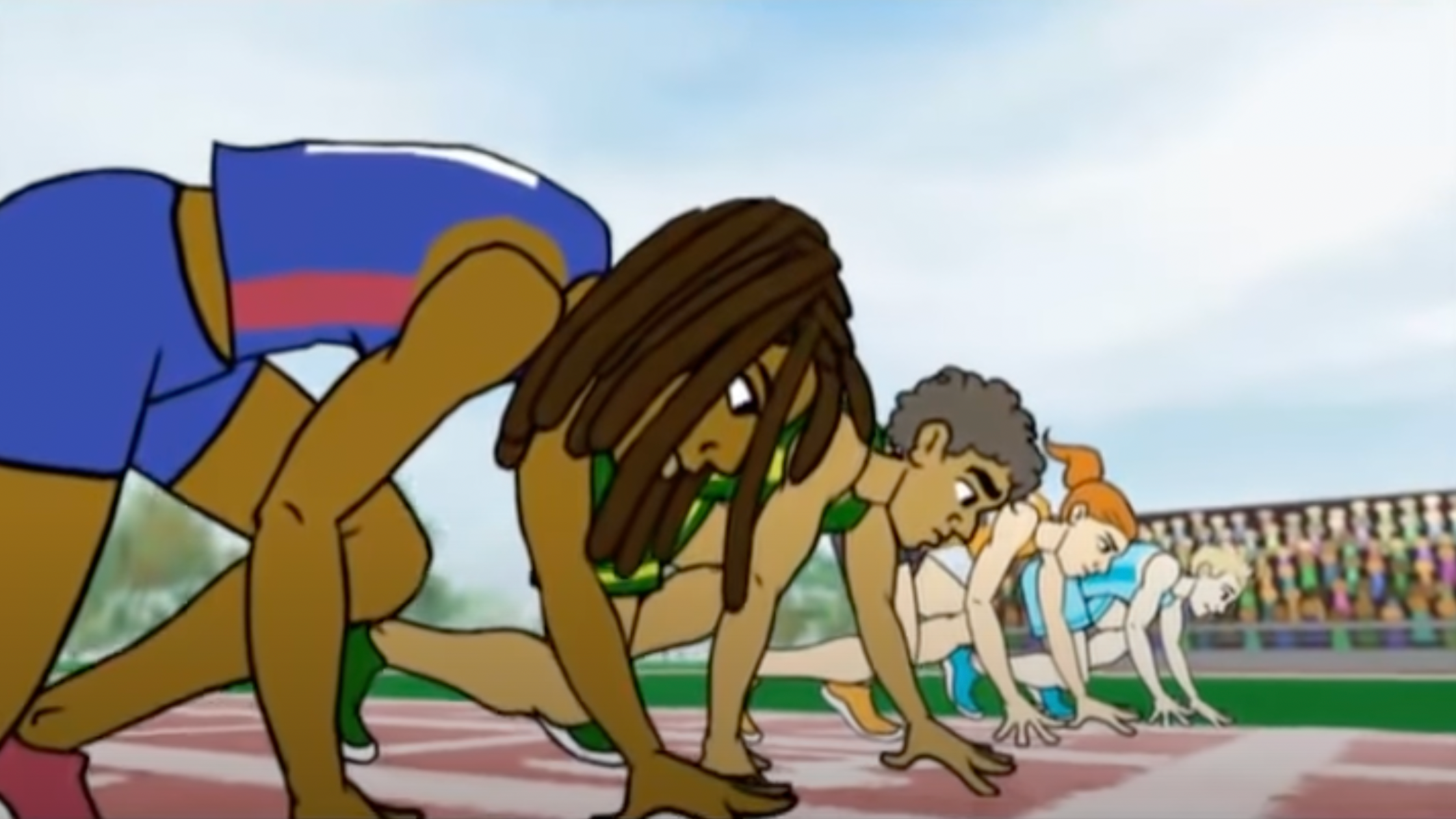
Short film for the African American Policy Forum, showing metaphors for obstacles to equality which affirmative action tries to alleviate. All graphics and animation by Erica Pinto.
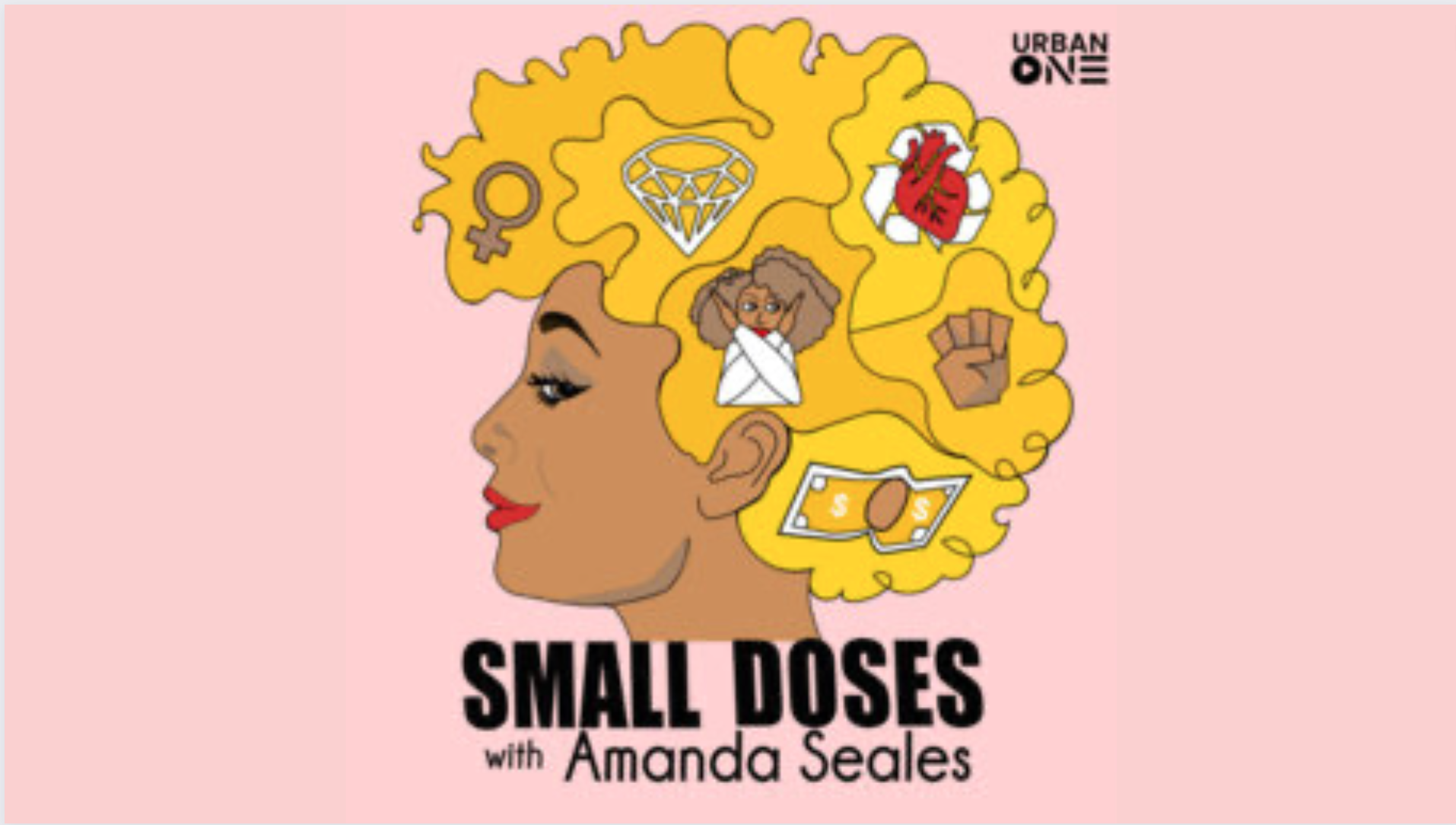
On this episode of Amanda Seales’s podcast, actress Tika Sumpter joins her to speak on creating a much-needed sweet space for Black moms. The two women discuss what it’s like to black a mother. It is a safe space to debrief all feelings on this matter.
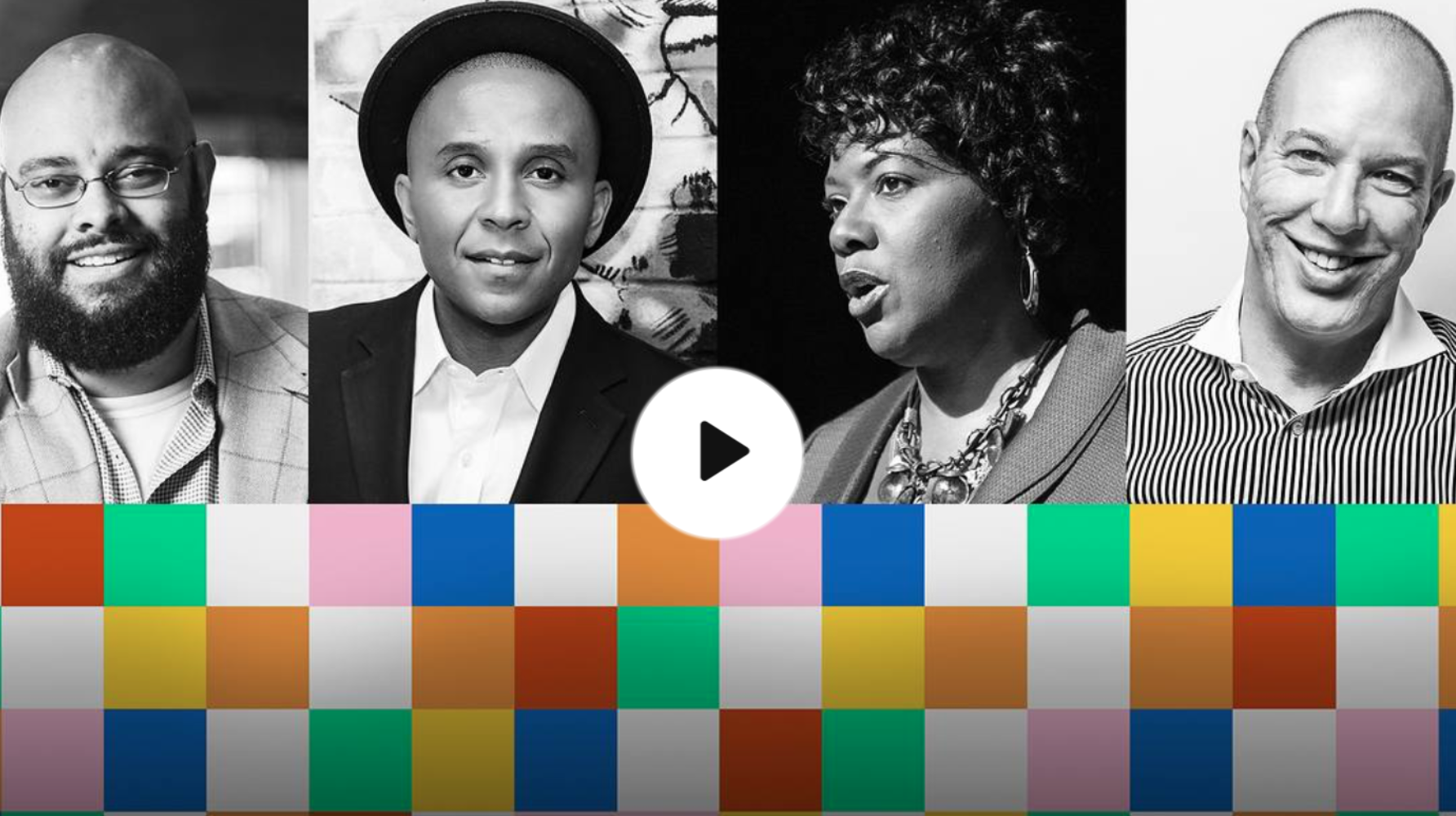
This playlist of Ted Talks aims to educate and inform people about racism in the US. From passionate pleas for reform to poetic turns of phrase, these talks take an honest look at everyday realities of Black Americans and illuminate the way forward.
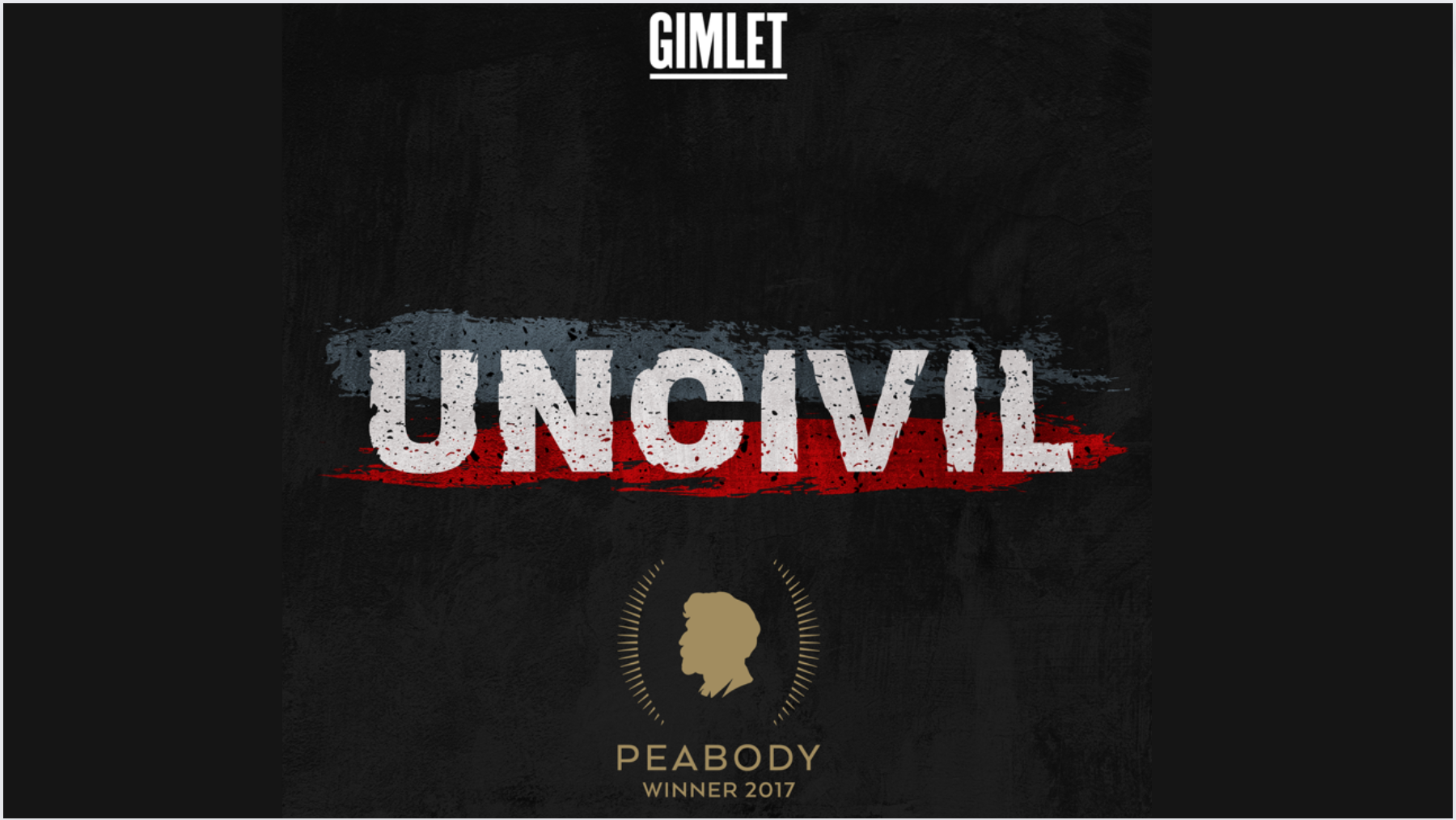
A history podcast from Gimlet Media, where the speakers go back to the time our divisions turned into a war, and bring you stories left out of the official history. This podcast covers stories about the Civil War that aren’t taught in history class in school.
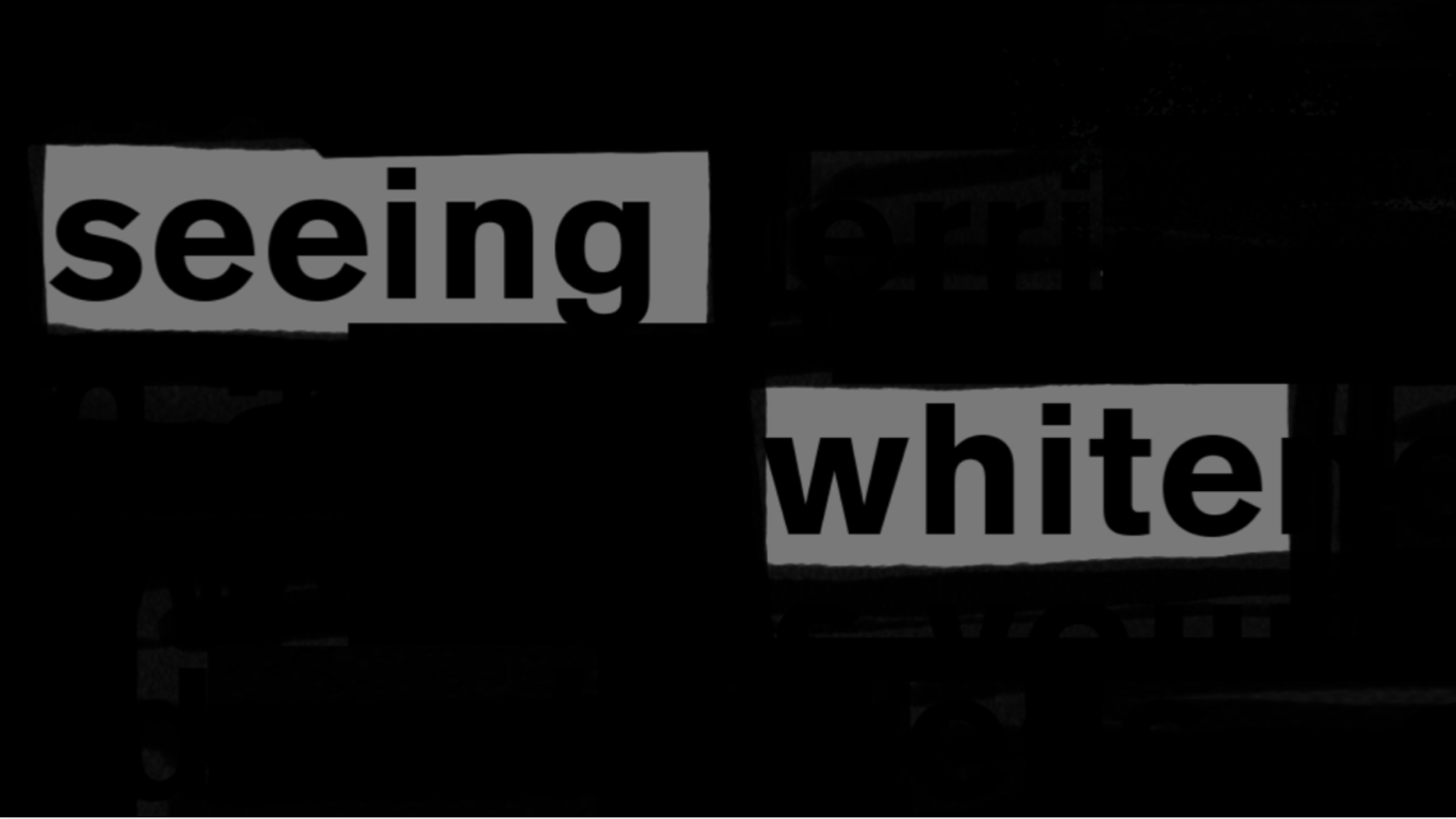
Just what is going on with white people? Police shootings of unarmed African Americans. Acts of domestic terrorism by white supremacists. The renewed embrace of raw, undisguised white-identity politics. Unending racial inequity in schools, housing, criminal justice, and hiring. Some of this feels new, but in truth it’s an old story.
Why? Where did the notion of “whiteness” come from? What does it mean? What is whiteness for?
Scene on Radio host and producer John Biewen took a deep dive into these questions, along with an array of leading scholars and regular guest Dr. Chenjerai Kumanyika, in this fourteen-part documentary series, released between February and August 2017.
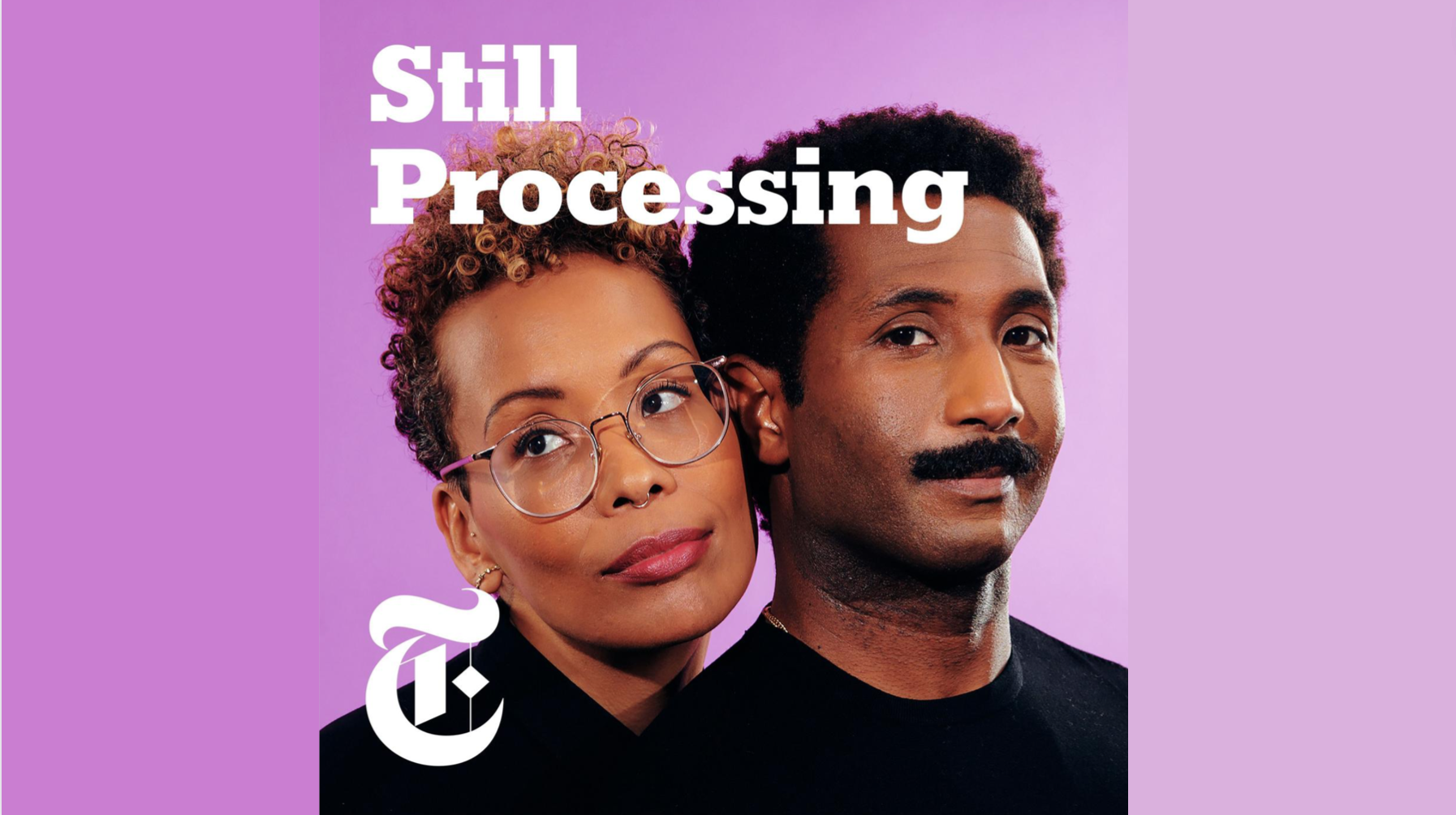
Wesley Morris and J Wortham are working it out in this weekly show about culture in the broadest sense. That means television, film, books, music — but also the culture of work, dating, the internet and how those all fit together. This podcast discusses how the Trump political era has taken a toll on mental/physical/emotional health and how to take care of ourselves.
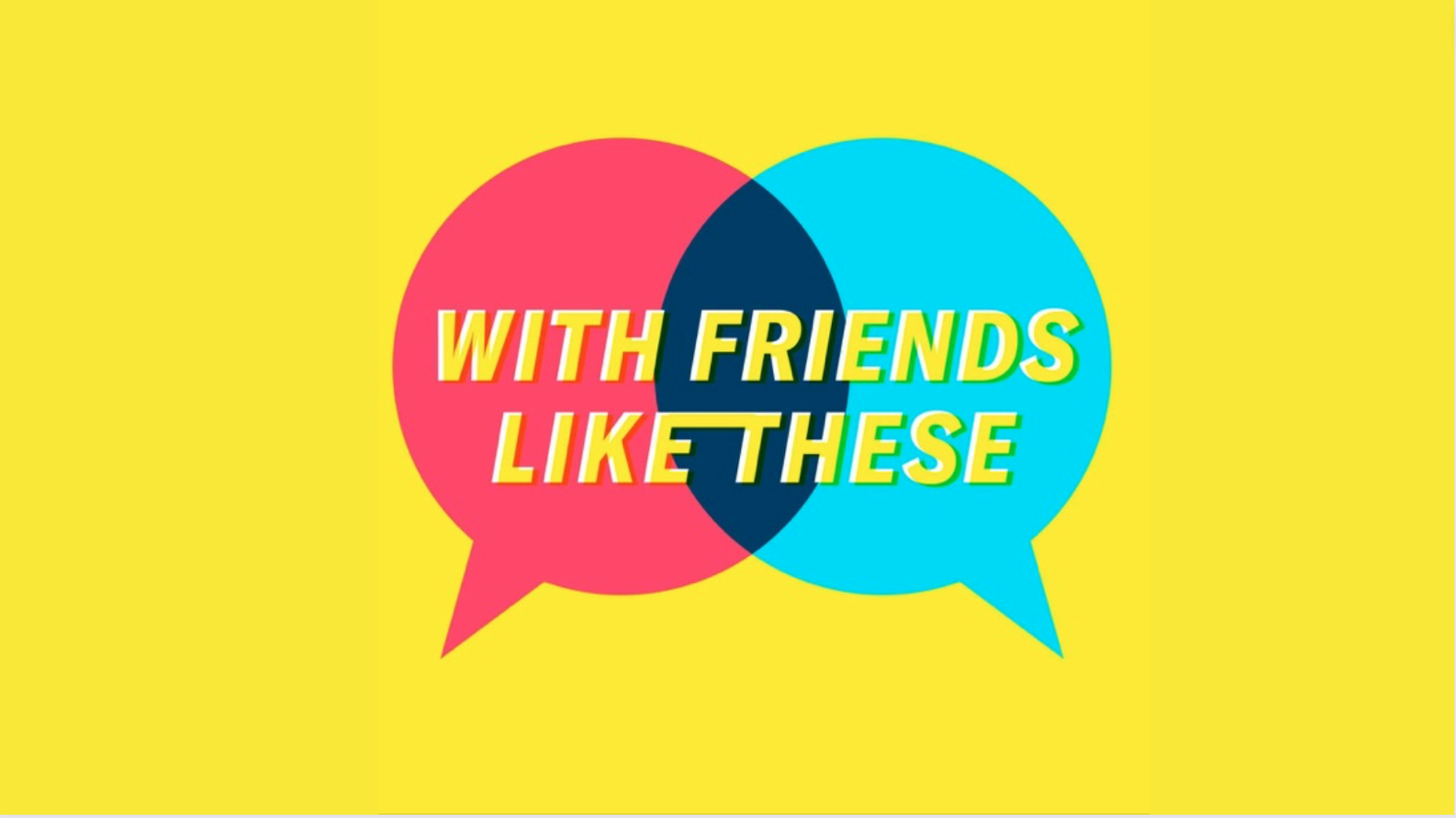
On this podcast episode, Ana (@anamariecox) sat down with Robin DiAngelo, author of the book White Fragility: Why It’s So Hard for White People to Talk About Racism. Robin explained what white fragility is, and the impact that it has not just on white people, but white progressives in particular. Ana and Robin then talked about the need for people who recognize racism’s ills not to get complacent or arrogant, but rather be actively anti-racist, and continue educating themselves. They then switched gears, and explored why white women often fail to be allies for people of color before probing the ways de facto segregation and tokenizing minorities are so deeply problematic. Ana and Robin also put forth a series of suggestions for what well-meaning white people should do when they put their foot in their mouths and say something racist.
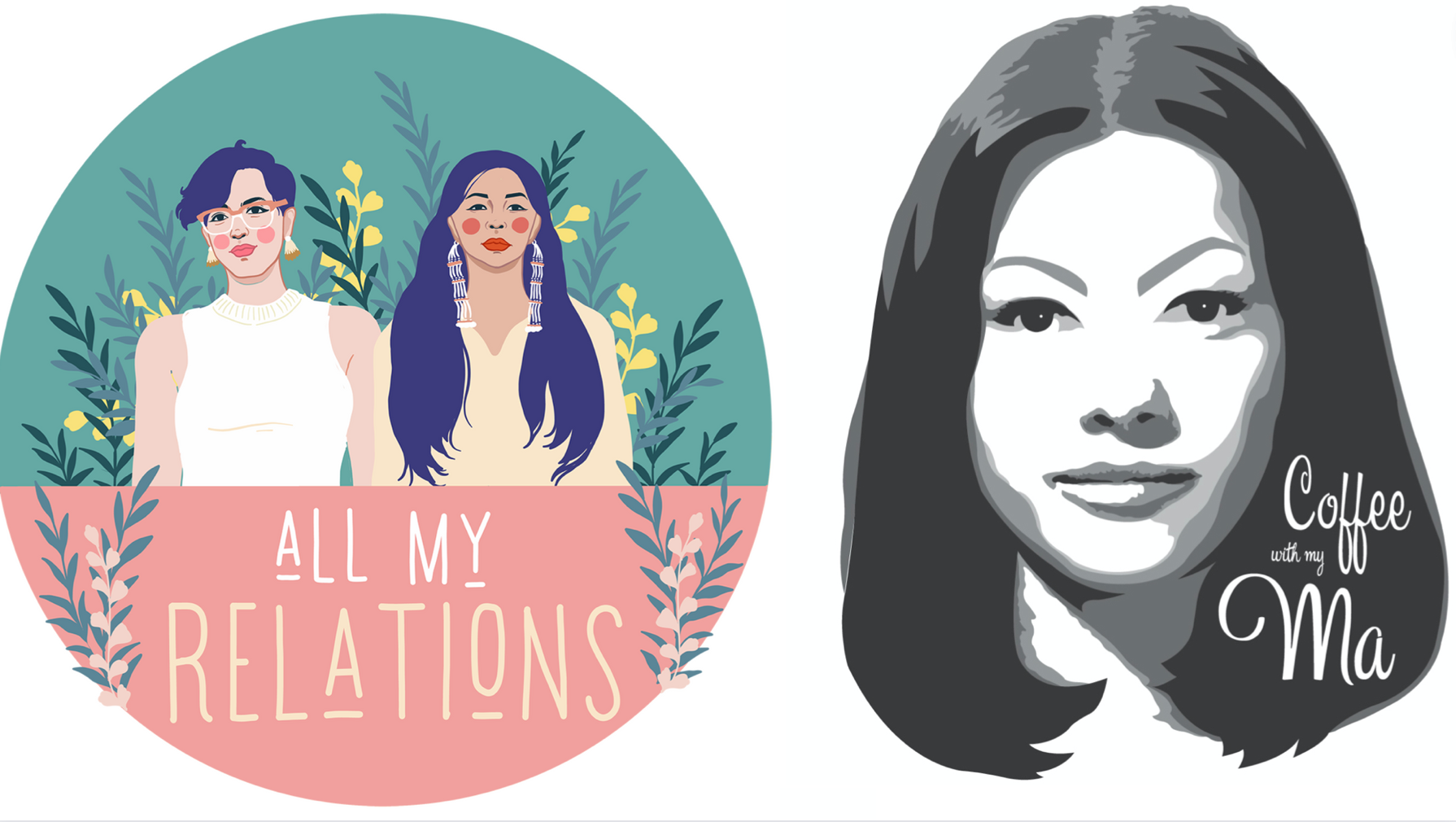
This article provides a list of 12 great podcasts all hosted by Indigenous women about a variety topics.
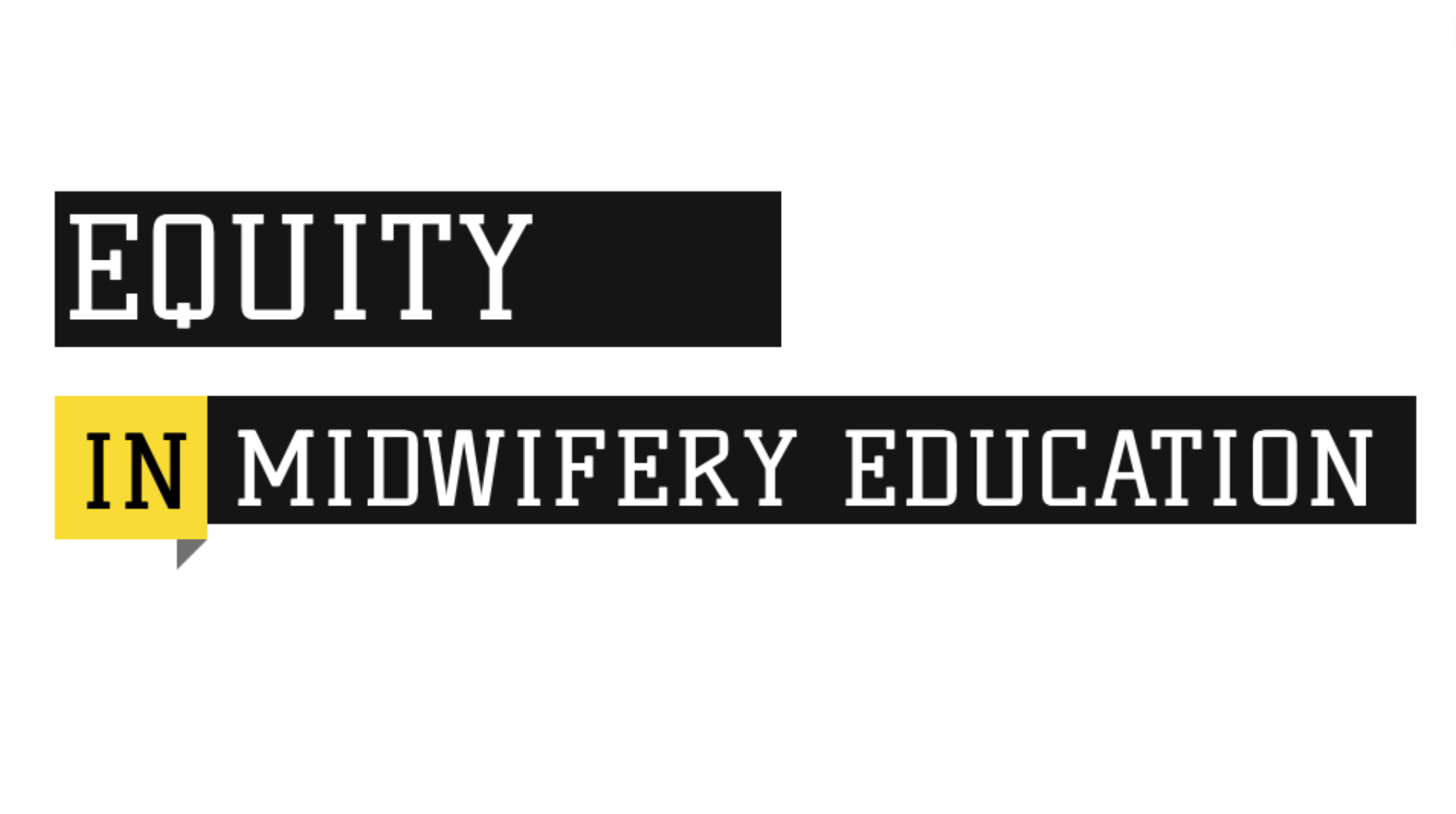
This series is made up of numerous webinars that each discuss different topics relating to giving birth and how different people are affected. (Examples of topic are how POC are affected by giving birth, and how gender identity and/or sexuality affect this process)
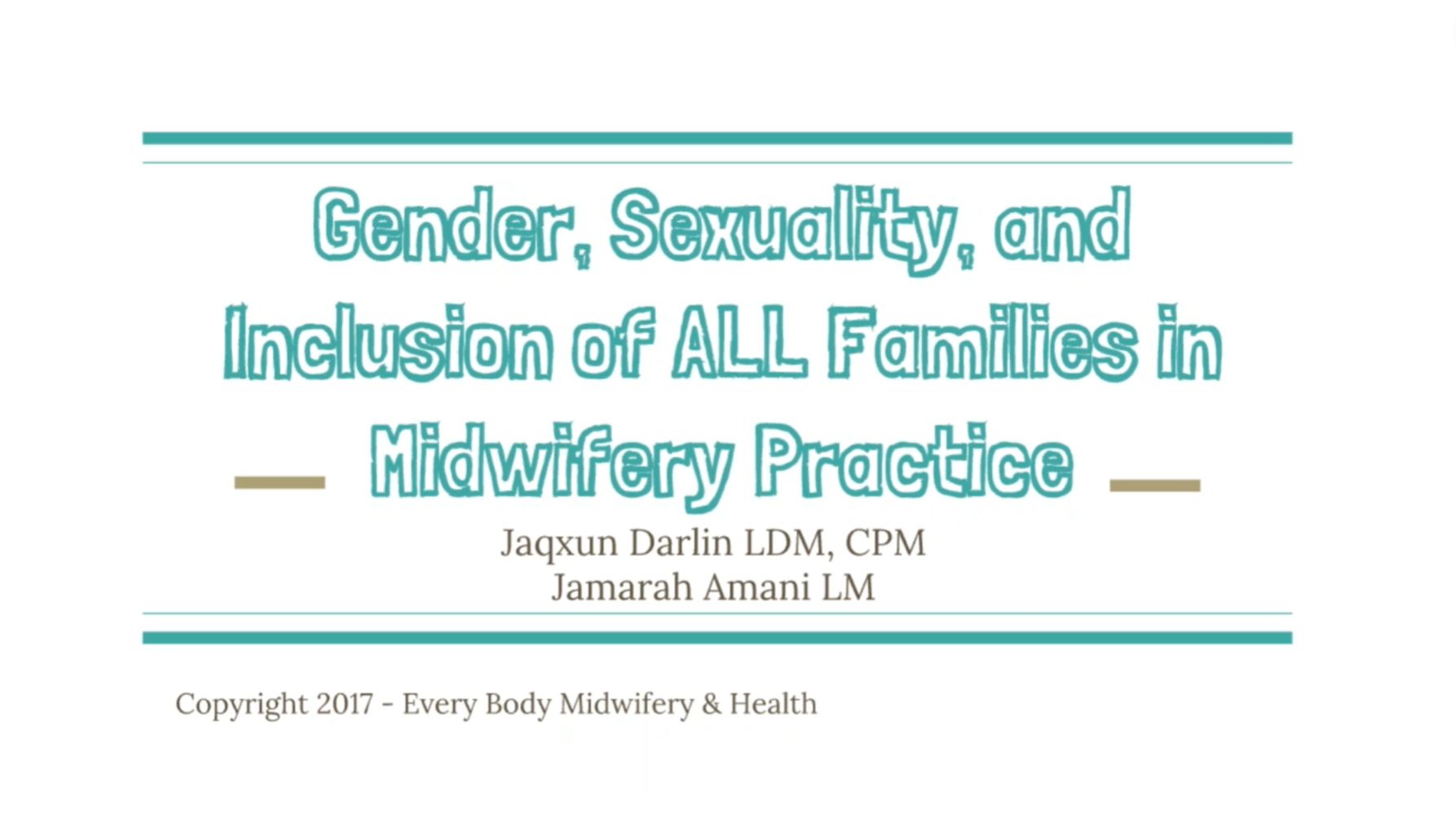
This webinar by NACPM discusses how to best practice inclusion in midwifery. In this introductory level workshop, Jaqxun Darlin, CPM, LDM and Jamarah Amani, LM, explored how providing client-centered care for lesbian, bisexual, transgender, and other queer spectrum clients improves and enhances the care we can provide for all families seeking midwifery care. LGBTQIA individuals face many obstacles to healthcare access including a lack of knowledgeable care providers, other people’s lack of awareness of identity issues, and outright prejudice and discrimination. This leads to underutilization of healthcare and contributes to health disparities and poor outcomes, especially by individuals with intersecting marginalized identities.
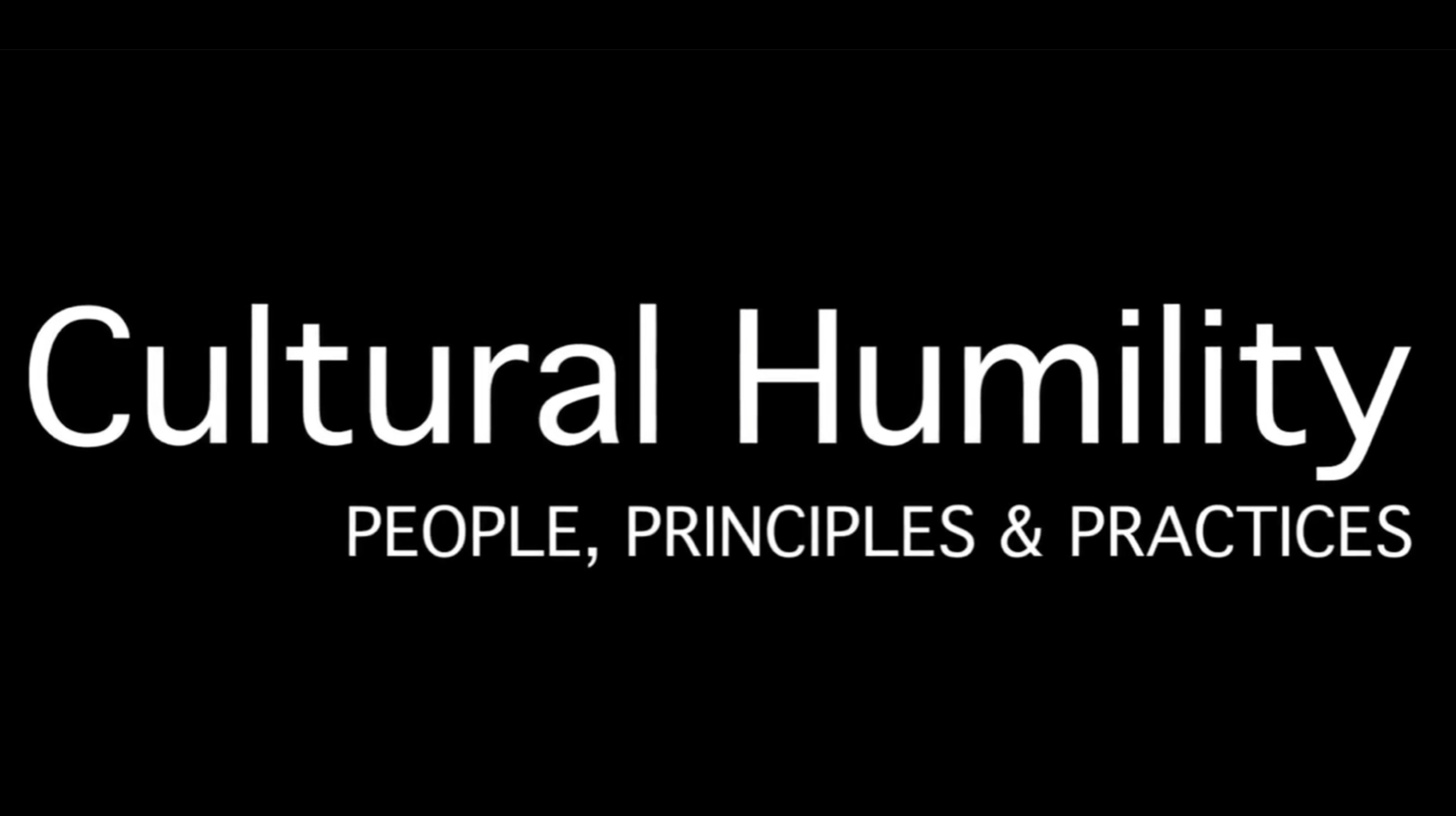
"Cultural Humility: People, Principles and Practices," is a 30-minute documentary by Vivian Chávez, that mixes poetry with music, interviews, archival footage, images of community, nature and dance to explain what is “Cultural Humility” and why we need it. The film describes a set of principles that guide the thinking, behavior and actions of individuals and institutions influencing interpersonal relationships as well as systems change.
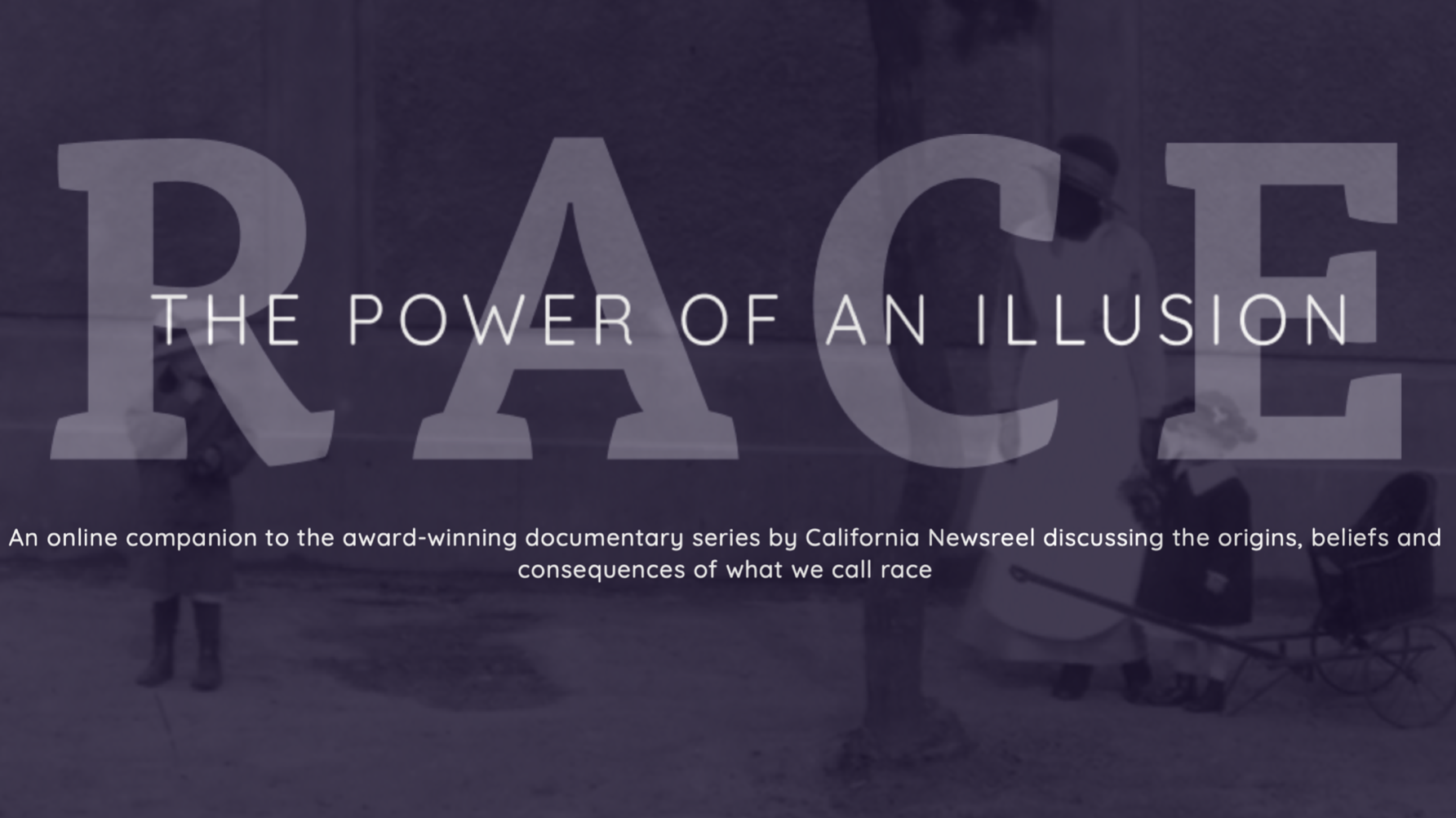
A documentary series questioning the origins of race as "innate biology". It notes that race is important and has impacts on identity and many other aspects of life, but questions its origins in biology.
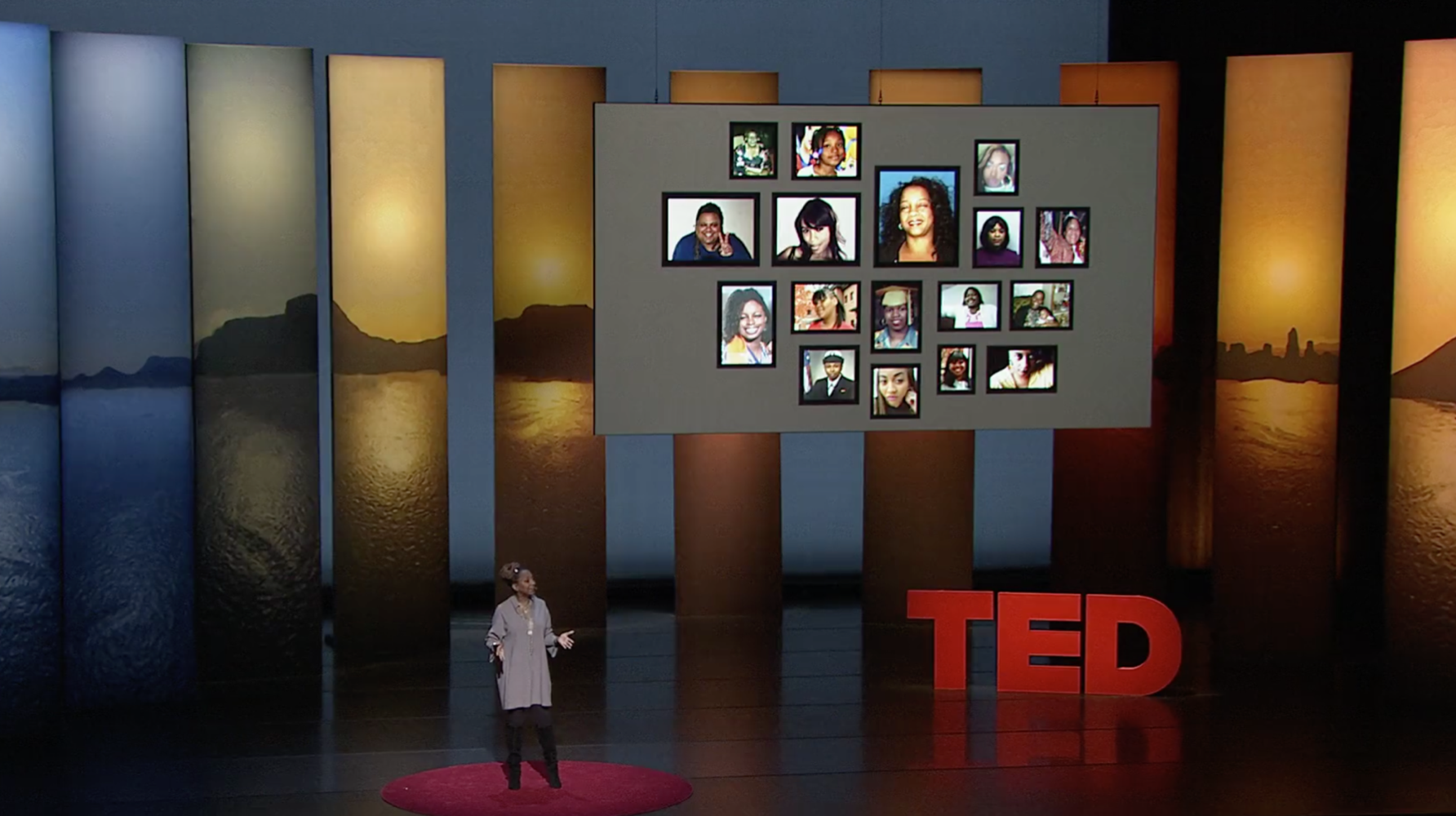
Now more than ever, it's important to look boldly at the reality of race and gender bias -- and understand how the two can combine to create even more harm. Kimberlé Crenshaw uses the term "intersectionality" to describe this phenomenon; as she says, if you're standing in the path of multiple forms of exclusion, you're likely to get hit by both. In this moving talk, she calls on us to bear witness to this reality and speak up for victims of prejudice.
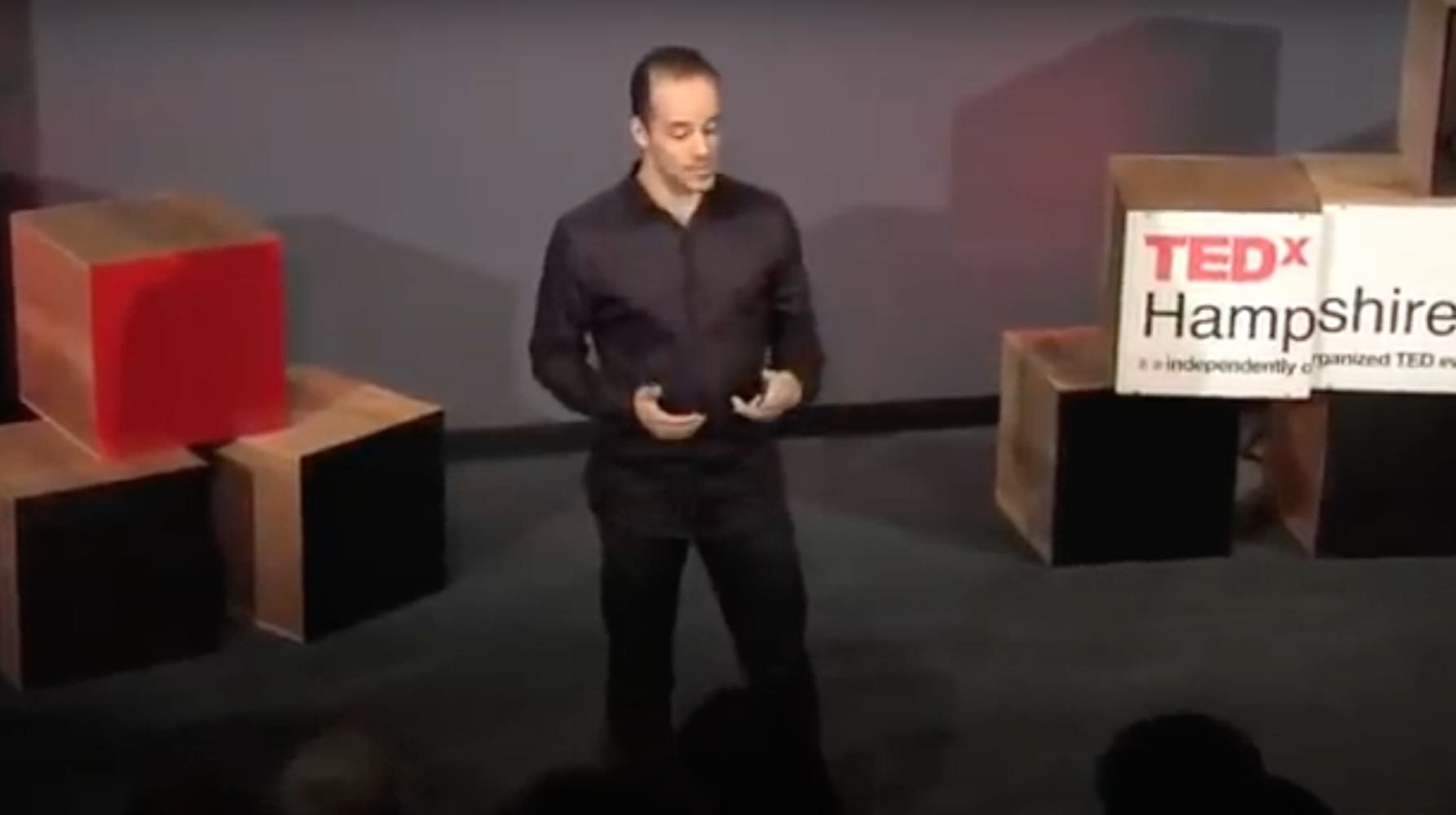
A TED Talk by Jay Smooth about engaging in race conversations-how we communicate about race and how we can improve- including how to take critique and suggestion, and realizing that perfection is not the best mindset when navigating race, and more.
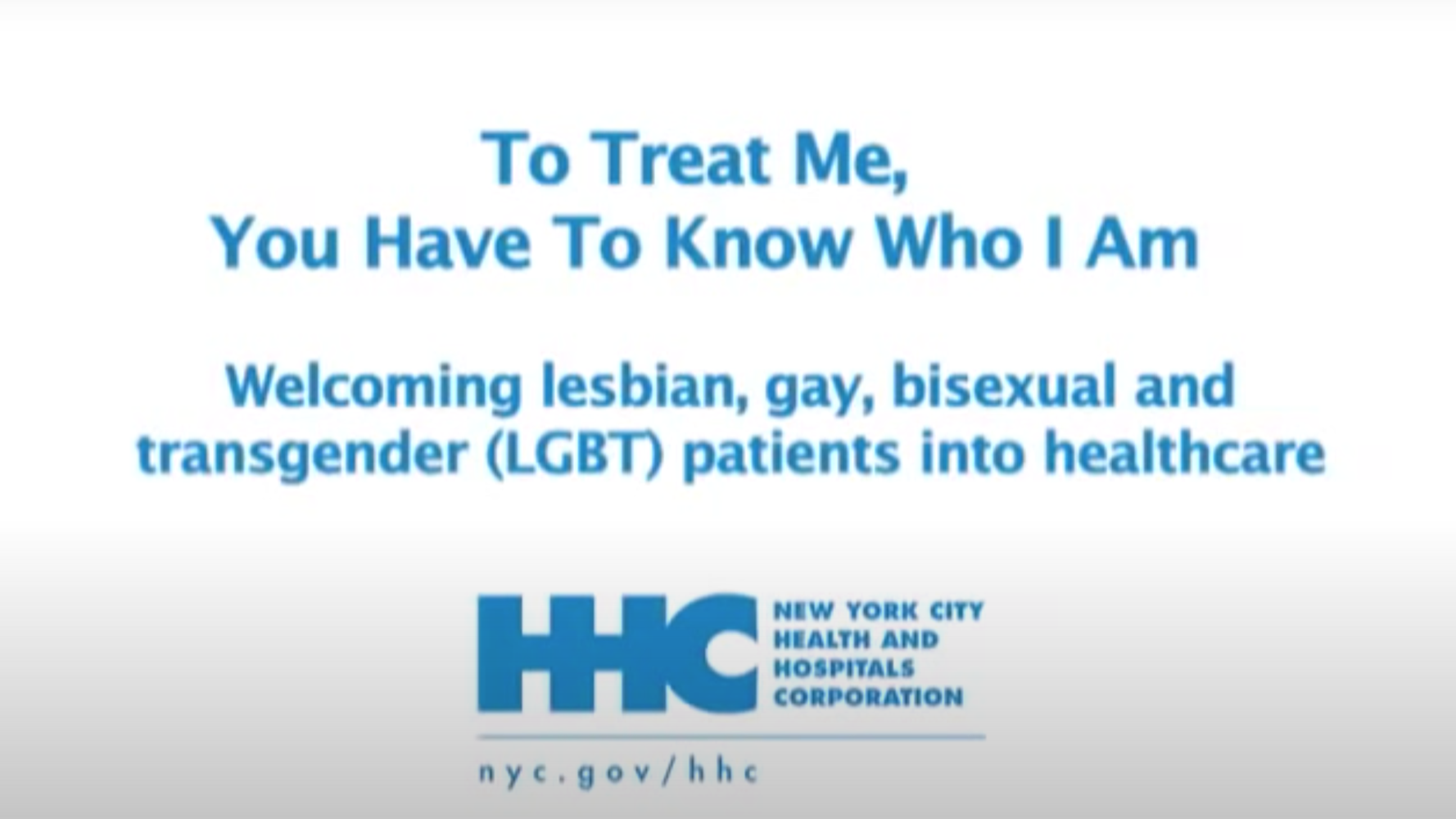
This video is part of a training program for LGBT cultural competence in healthcare created by the National LGBT Cancer Network for NYC-HHC . (www.cancer-network.org) (nyc.gov/hhc)
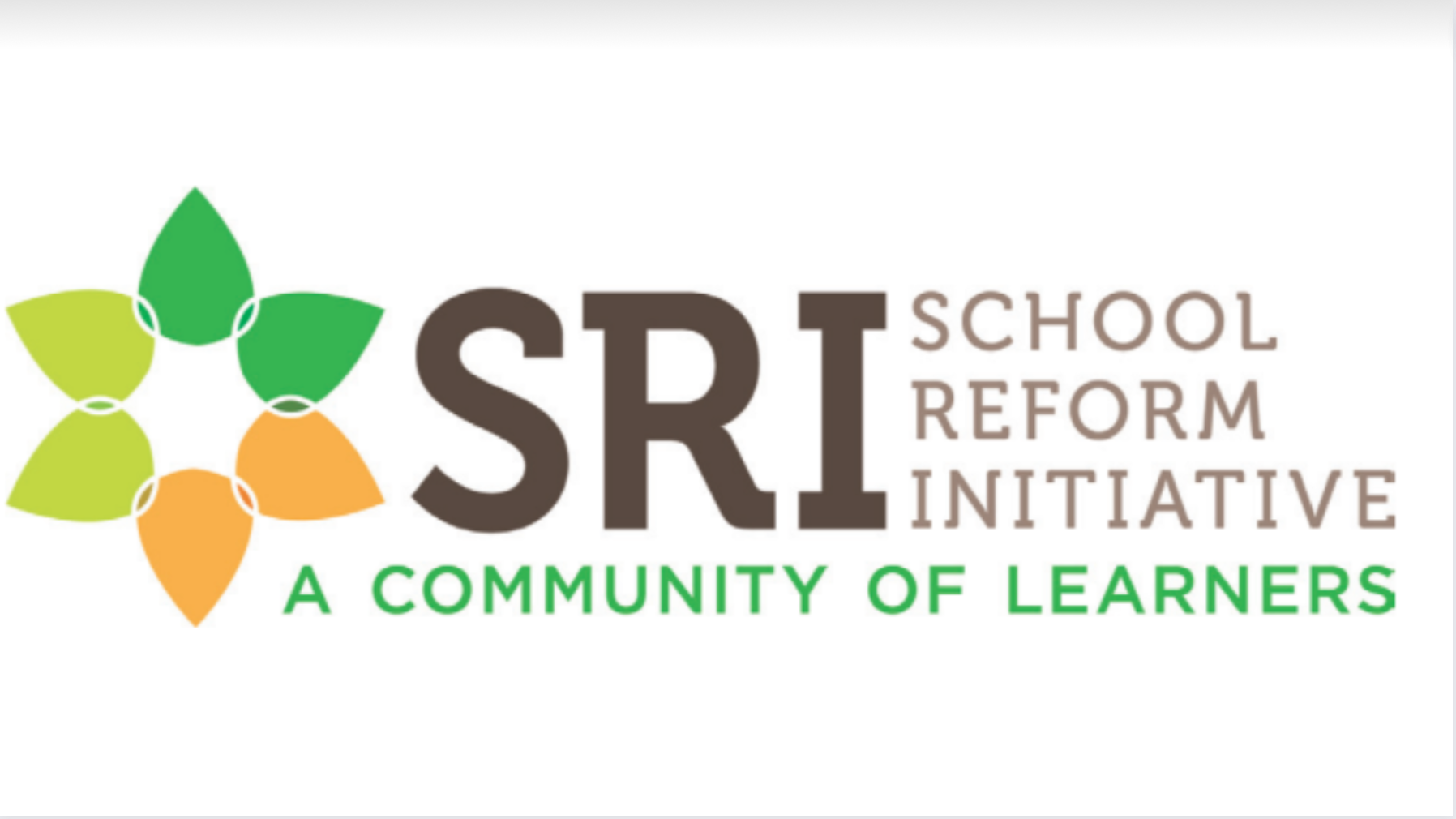
The purpose of Coffee Talk is to provide a lightly facilitated way for participants to enlarge their thinking by: reading several related articles; writing reflectively about their responses; and talking with others. It works well with large groups and is particularly well suited for use with readings that come out of an equity or social justice perspective.

















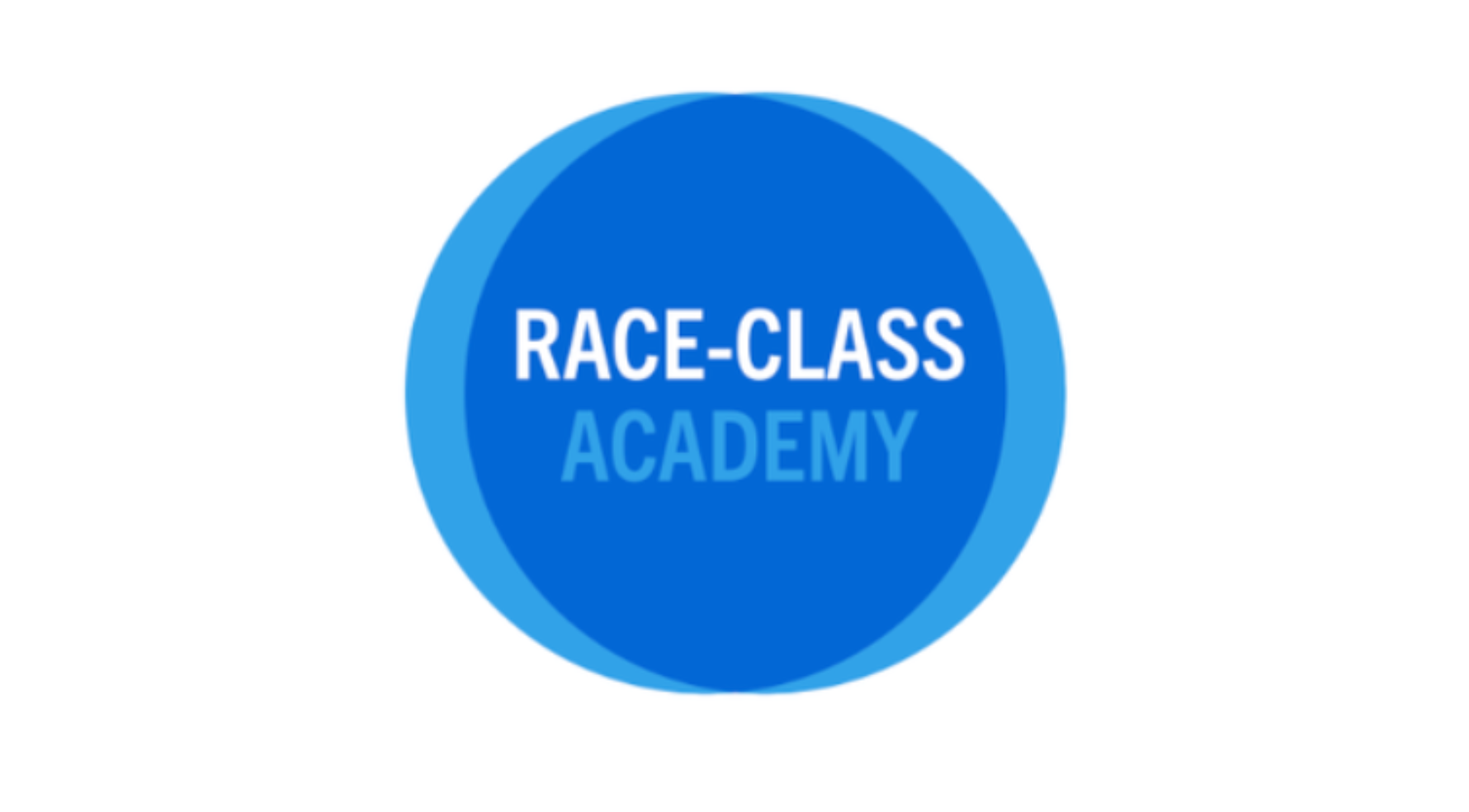
Commitments

We honor and uphold the right to self-determination and bodily autonomy for all people. We believe that as midwives, our purpose is to support parents and babies throughout the childbearing year, taking into account the unique physiological, psychological, and social well-being and needs of each client. It is our work to provide individualized education and counseling, as well as client-centered prenatal, intrapartum, and postpartum care. We understand the importance of providing compassionate, holistic, and culturally sensitive midwifery care, and we strive towards making the Midwives Model of Care™ accessible for every person and family who seeks it, regardless of race, ethnicity, religion, ability, sexual orientation, gender identity or gender expression. We acknowledge the disproportionate effects of transphobia on those with other marginalized identities such as being a person of color, low-income or disabled. Many racial health disparities that concern midwives and impact our communities are experienced in greater numbers by people who are both Black and transgender. These lives especially are in need of the kind of respectful, compassionate, and individualized care midwives can offer. We assert that we can honor the power of all women while at the same time extending this reverence to all people who are pregnant and giving birth, and that to do so is in full alignment with the heart of midwifery.

This is a working document for scaffolding anti-racism resources. The goal is to facilitate growth for white folks to become allies, and eventually accomplices for anti-racist work. These resources have been ordered in an attempt to make them more accessible. We will continue to add resources.

This document is intended to serve as a resource to white people and parents to deepen our anti-racism work. If you haven’t engaged in anti-racism work in the past, start now. Feel free to circulate this document on social media and with your friends, family, and colleagues.

This is a list of characteristics of white supremacy culture which show up in our organizations. Culture is powerful precisely because it is so present and at the same time so very difficult to name or identify. The characteristics listed below are damaging because they are used as norms and standards without being pro-actively named or chosen by the group. They are damaging because they promote white supremacy thinking. They are damaging to both people of color and to white people. Organizations that are people of color led or a majority people of color can also demonstrate many damaging characteristics of white supremacy culture.

There is a wide range of competencies that I believe whites can deepen on their own or in community with other whites. While this is not a comprehensive list, my hope is that it is a useful tool to spark conversation, assess your current level of competence, and identify goals for professional development. It may also be a good resource in learning communities for white people to plan their discussion topics and skill practice sessions.

One of the most visible ways the Sierra Club can demonstrate our commitment to equity, justice, and inclusion is by using respectful, thoughtful language in all of our communications. When we use outdated terms for people’s identities, or rely on metaphors that are dehumanizing, we risk alienating people from the Sierra Club and even from the broader environmental movement.

The State of Babies Yearbook: 2020 was produced as part of ZERO TO THREE’s Think BabiesTM, with data and indicator analysis powered by Child Trends. Funding partners for the 2020 Yearbook include the Perigee Fund and the Tikun Olam Foundation. Data provided by this effort are examined in this brief to better understand the inequities that begin before birth for both infants and mothers.









Websites
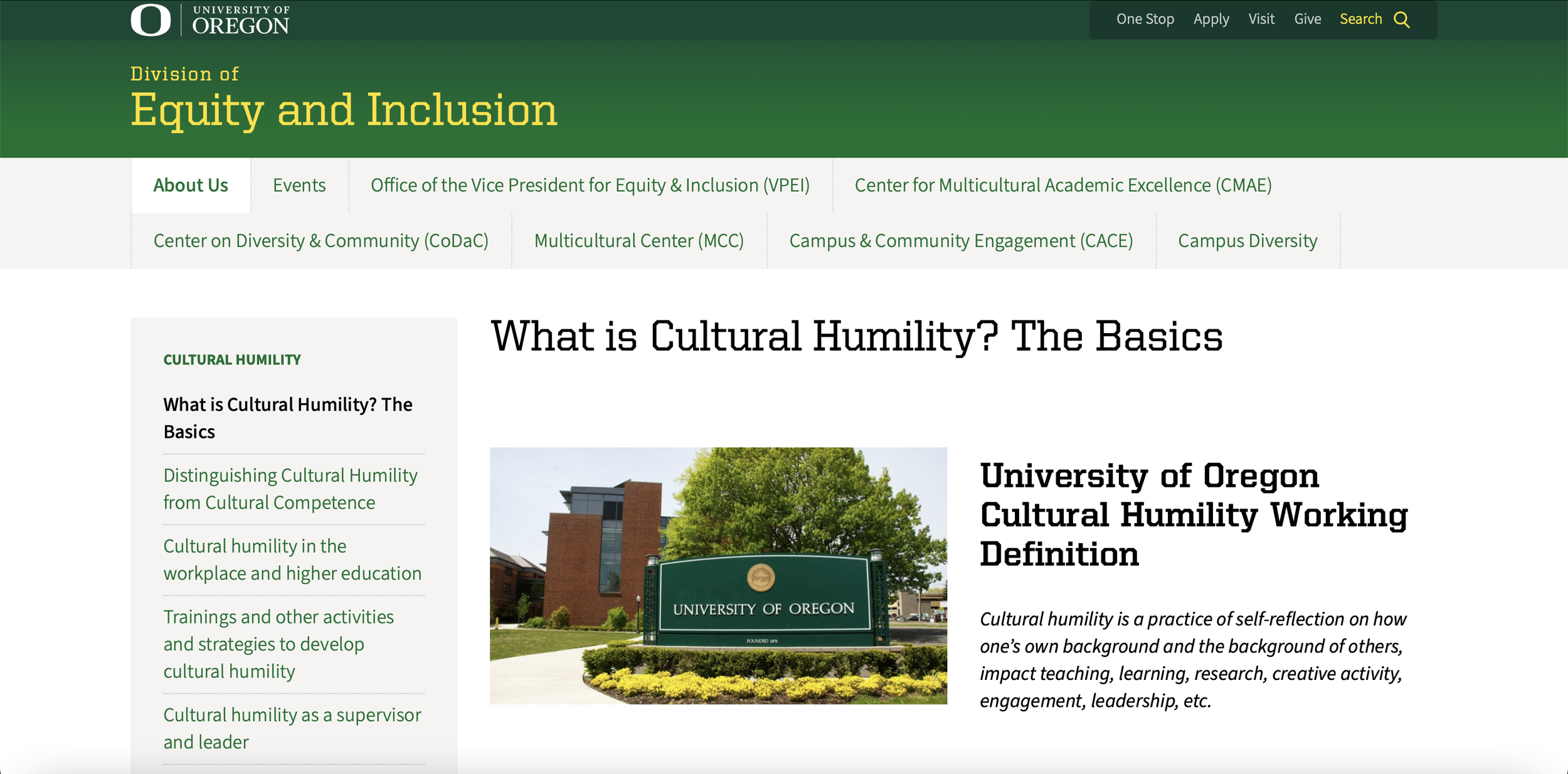
The University of Oregon’s Division of Equity and Inclusion provides a great resource for understanding cultural humility. It provides resources to educate the reader and train others on what cultural humility is.
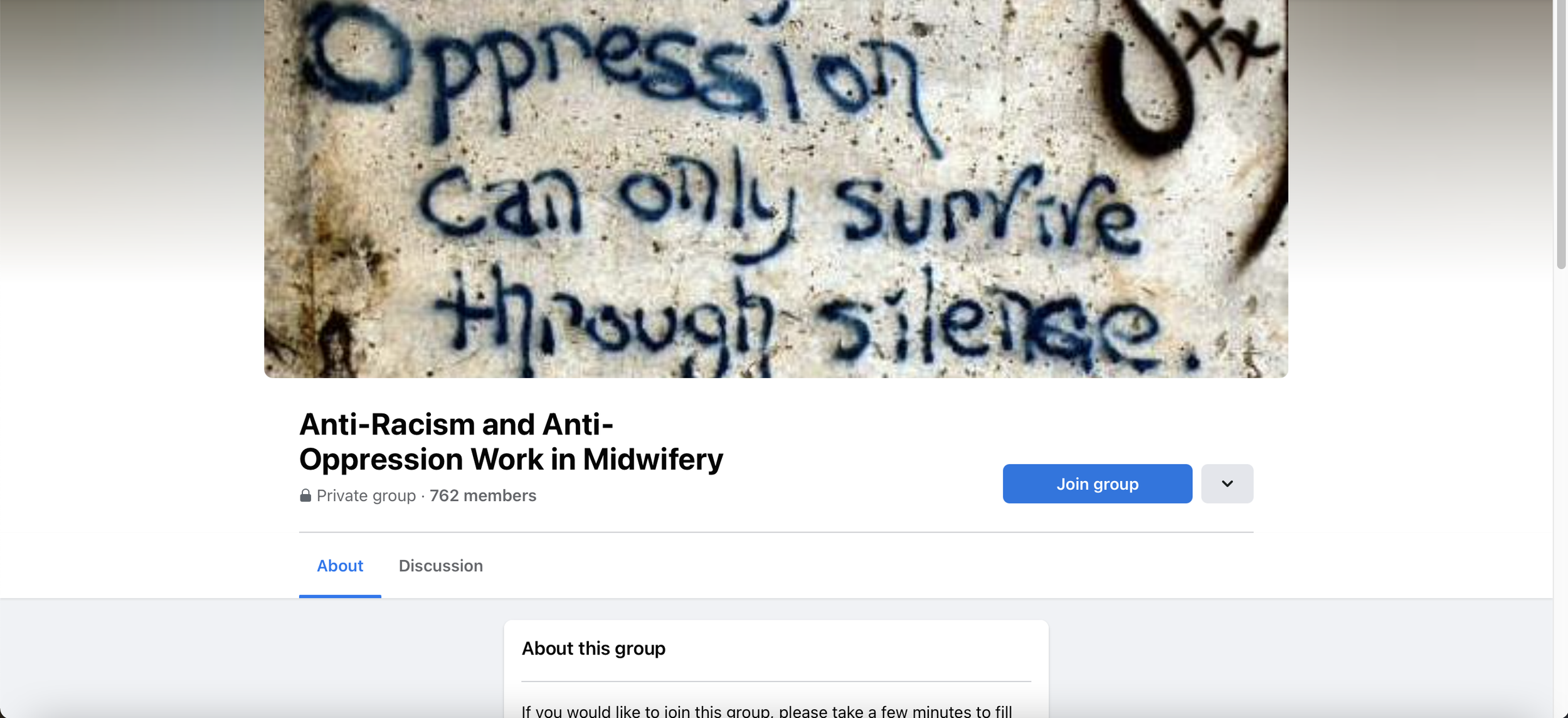
The Facebook group aims to promote, preserve, and improve midwifery care, to acknowledge our shortcomings in cultural competency, and work to help ourselves and others to overcome them. They value and strive to increase people's awareness of their choices in childbirth, and the overall quality and accessibility of midwifery care in our country.
They stand behind all efforts to promote compassion, choice, safety, education, expertise, collaboration, and above all equality, in helping expecting mothers achieve a safe and satisfying birth experience.
They invite all who are supporters of this important work to join us so that we can continue to promote unity, racial justice, and collaboration across the maternity care community and quickly spread the word about important issues and events that are central to the achievement of our important cause.
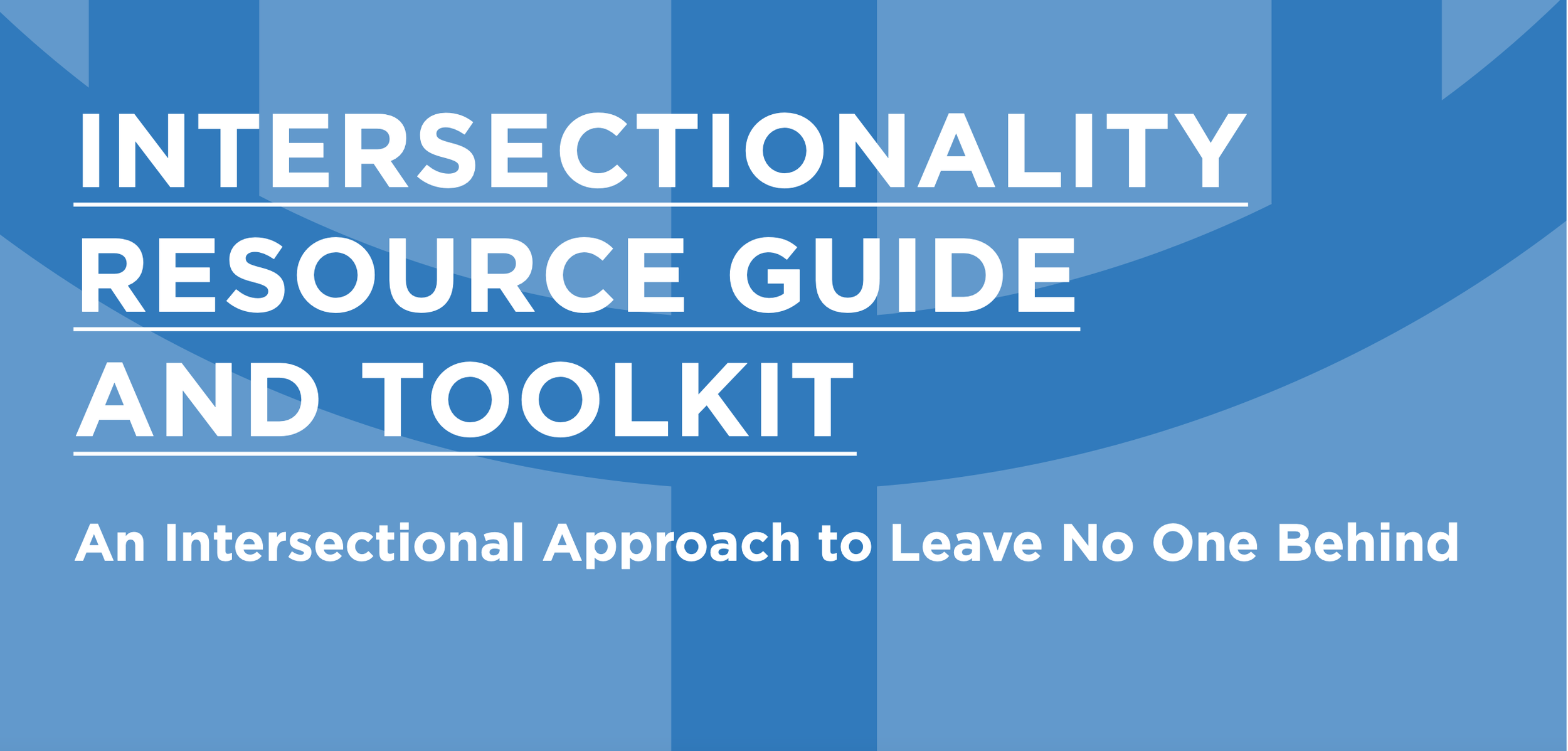
The Resource Guide and Toolkit has been developed to help both organizations and individual practitioners and experts address intersectionality in policies and in programs. It may be used by individuals or teams to assess their own knowledge, attitudes, and practice, at a program level as a supplement to existing design, adaptation, and assessment processes or at the policy level to better understand and address the different and intersecting effects of policy on marginalized persons.
Hence this Resource Guide and Toolkit will support this journey and prompt the user to inquire into and embrace ‘the messiness of difference’ that exists when all users and practitioners begin to recognize that “there is no such thing as a single-issue struggle because we do not live single-issue lives”.



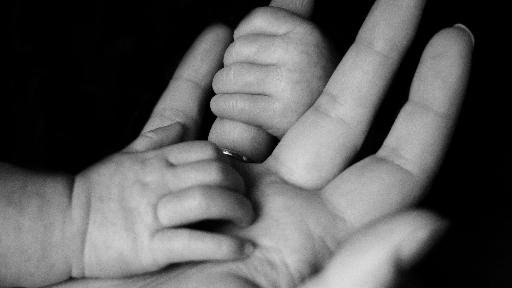
Public Figures
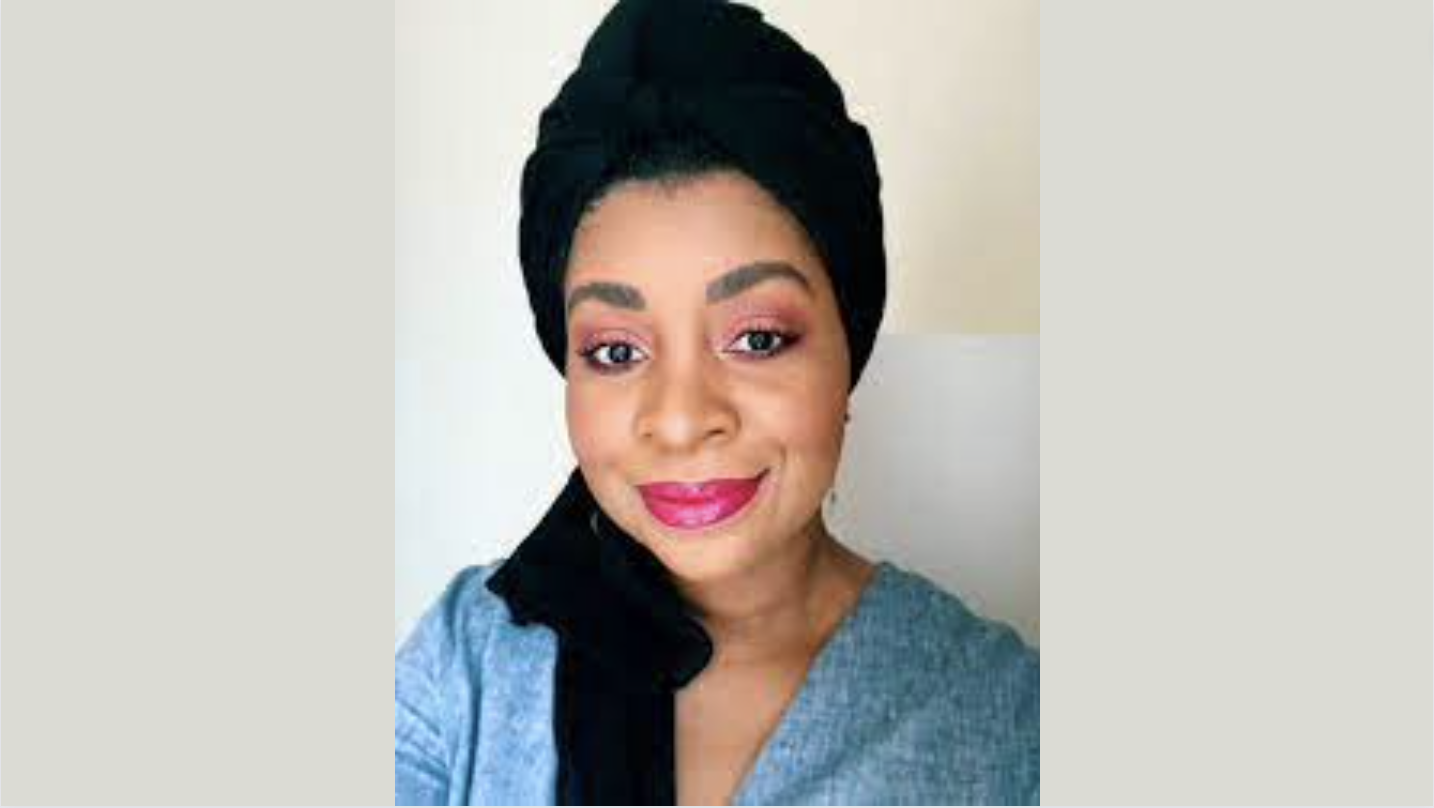
Layla Saad is an author, speaker & teacher on the topics of race, identity, leadership, personal transformation & social change.
Layla Is The New York Times And Sunday TIMES Bestselling author of the ground-breaking BOOK Me And White Supremacy (2020), the host of Good Ancestor Podcast, and the founder of THE Good Ancestor Book Club.
As a widely read writer, a globally sought speaker, and a popular podcast host, Layla is passionate about creating Inspiration, Education & Activation for personal and collective change in the world. Layla’s work is driven by a powerful desire to become a good ancestor; to live and work in ways that leave a legacy of healing and liberation, especially for black girls and black women.
Layla is unapologetically confronting the oppressive systems of white supremacy and patriarchy while offering important teachings and tools for transforming consciousness, cultivating personal anti-racism practice, and taking responsibility for our individual and collective healing.
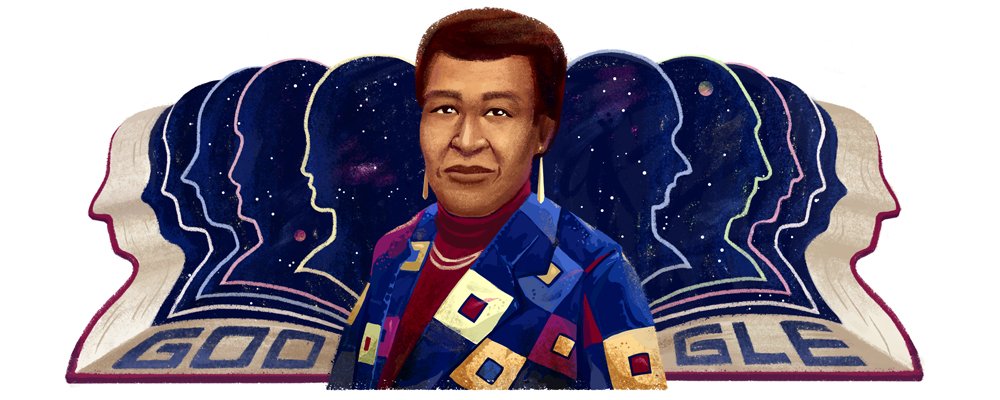
From her bio: Octavia E. Butler was a renowned African American author who received a MacArthur “Genius” Grant and PEN West Lifetime Achievement Award for her body of work. Her dystopian novels explored themes of Black injustice, global warming, women’s rights and political disparity. Her work is now taught in over 200 colleges and universities nationwide. The #1 New York Times bestselling graphic novel adaptation of her book KINDRED, created by Damian Duffy and John Jennings, received the Eisner Award for best adaptation.
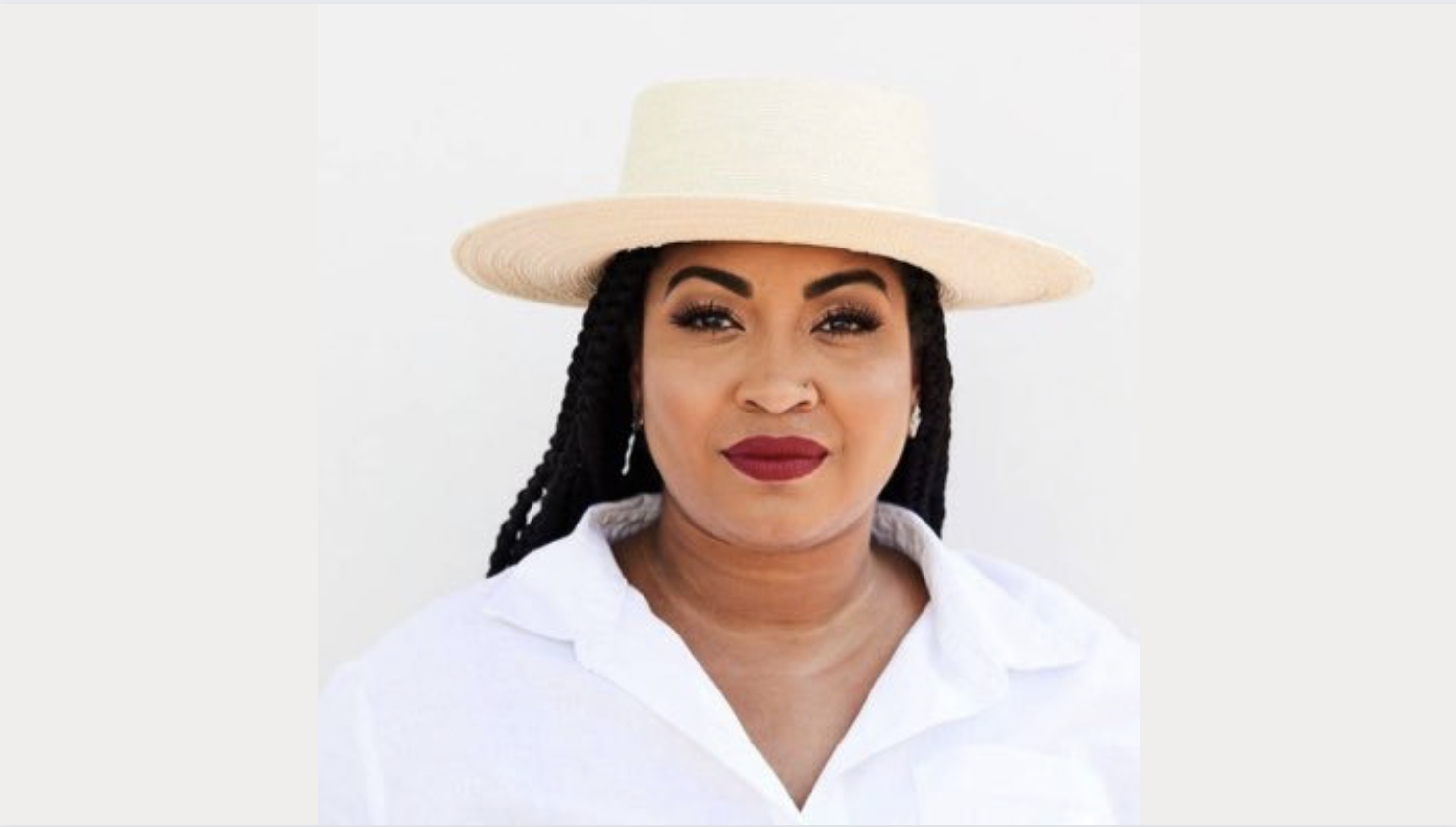
Rachel Cargle is a Black activist and writer. She writes and lectures on things that exist at the intersection of race and womanhood. Cargle also the #DoTheWork course, the course is designed to be an eye-opener and a call to action for those who seek to be allies to Black women.
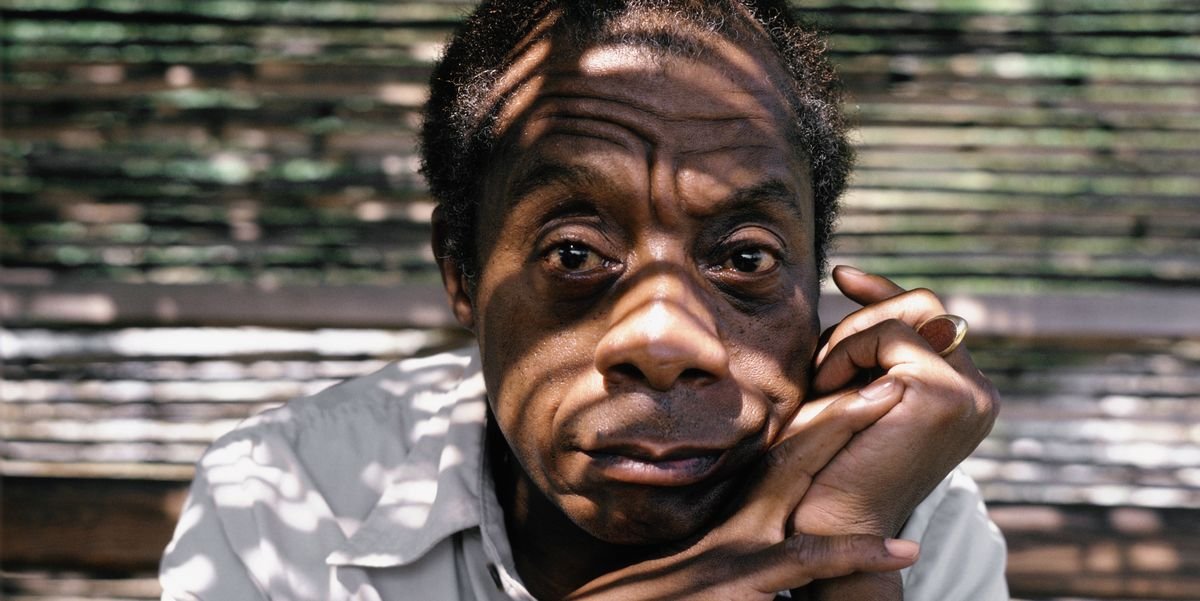
James Baldwin was a writer and civil rights activist who is best known for his semi-autobiographical novels and plays that center on race, politics, and sexuality. Baldwin’s works helped to raise public awareness of racial and sexual oppression. He was also an outspoken observer of race relations in American culture.




